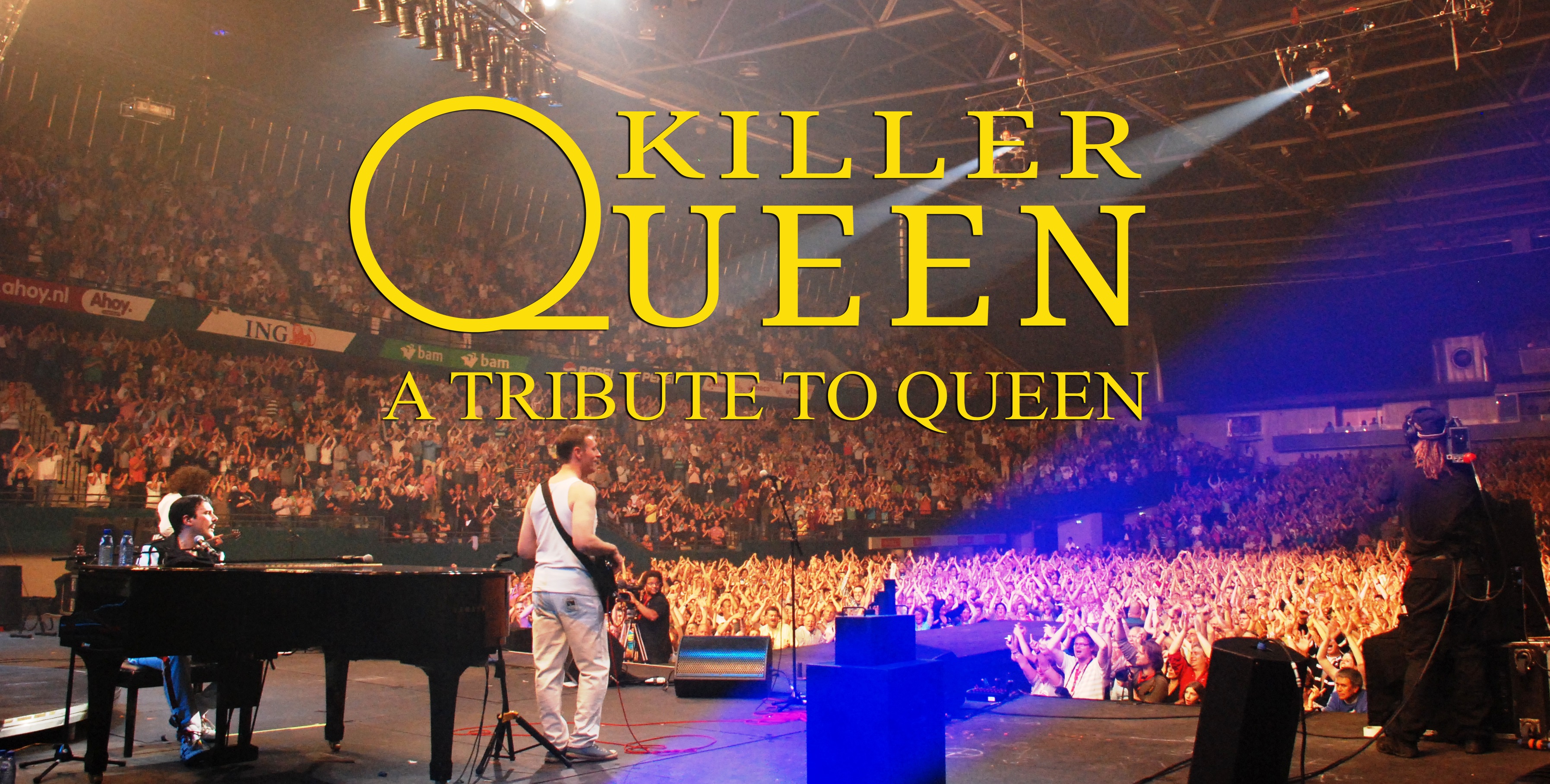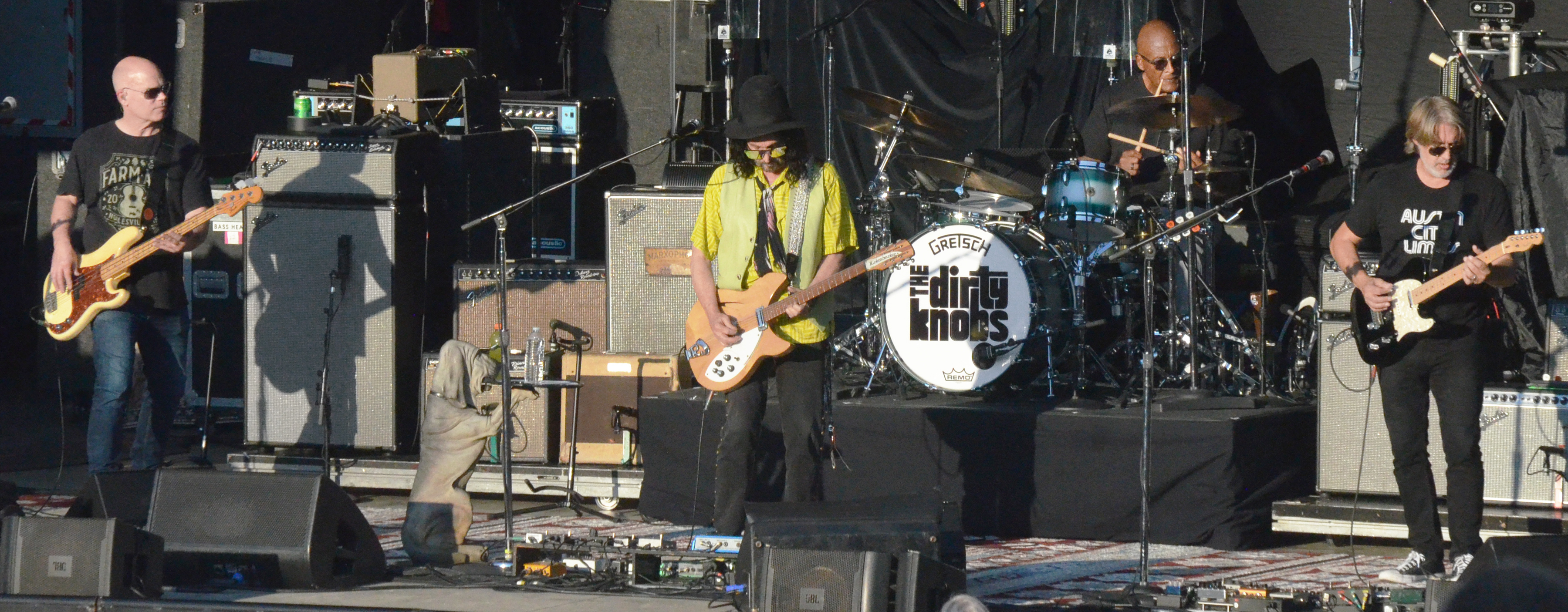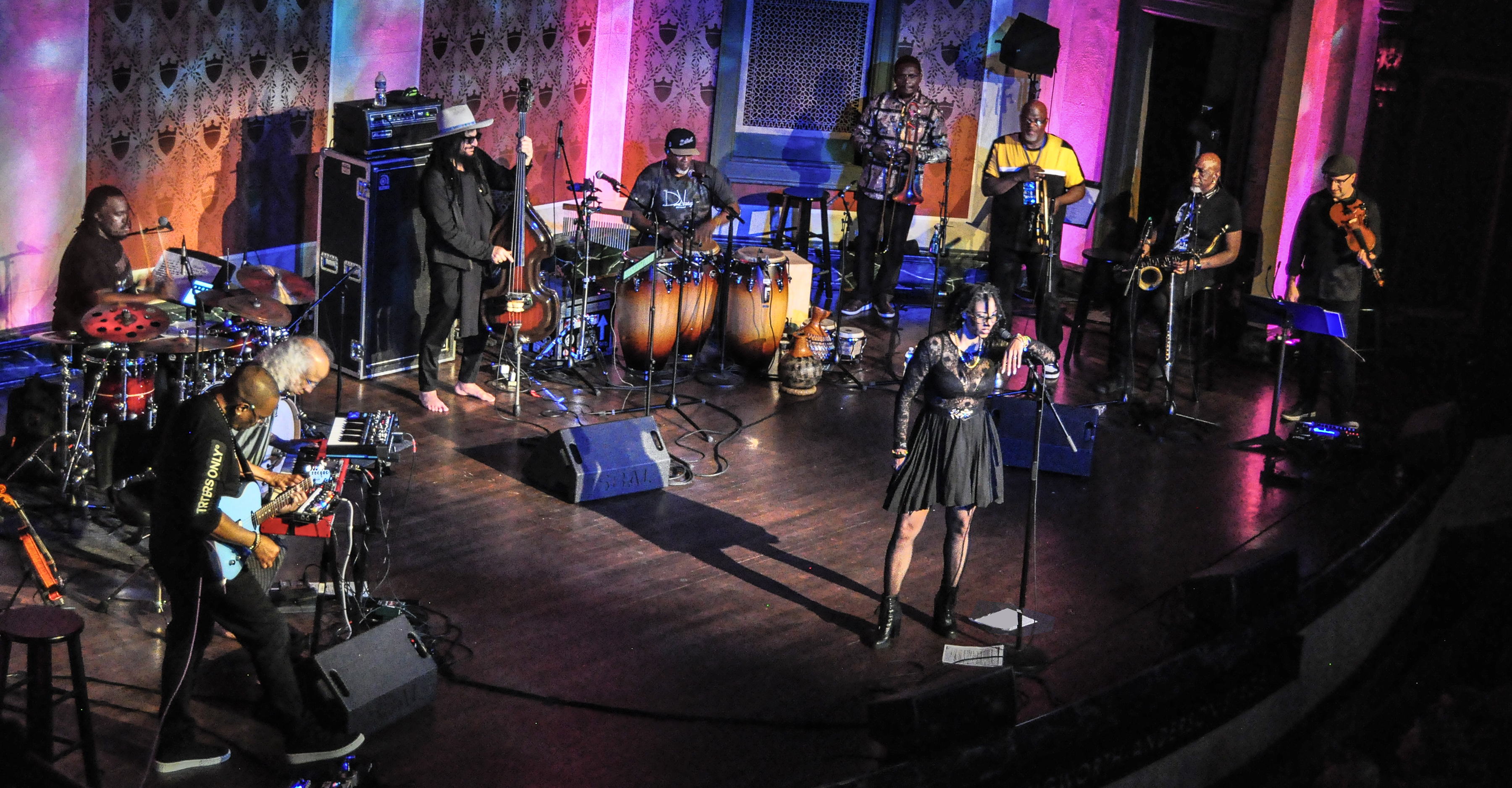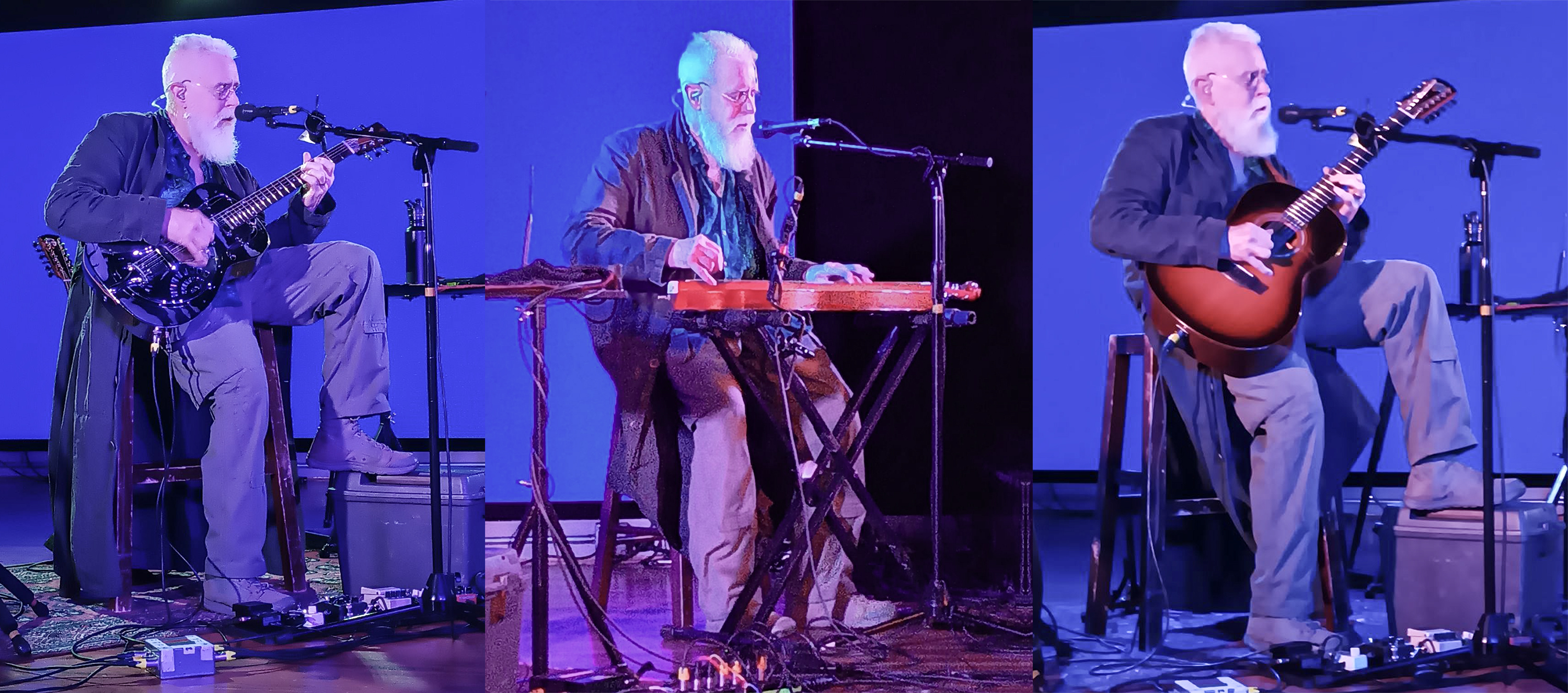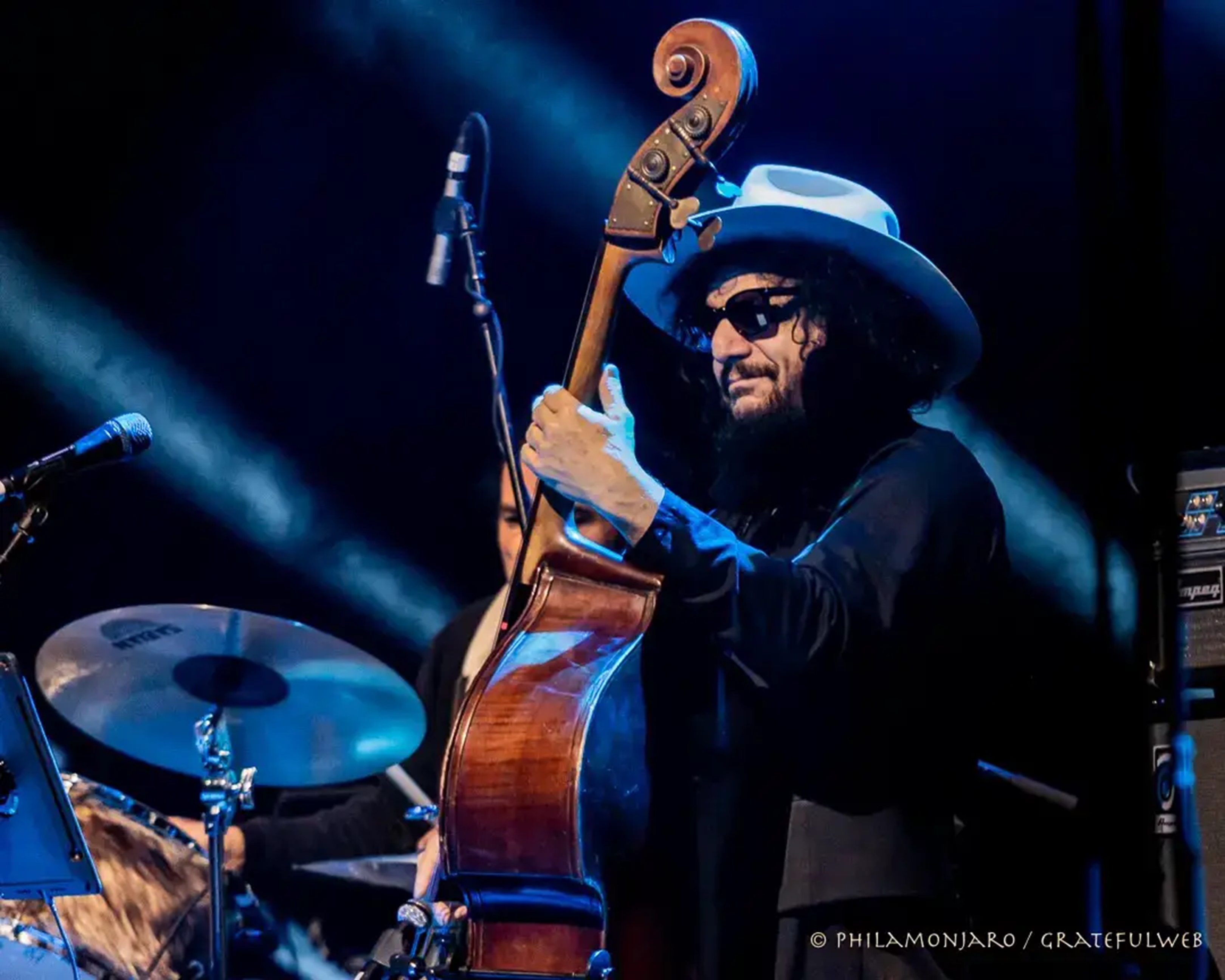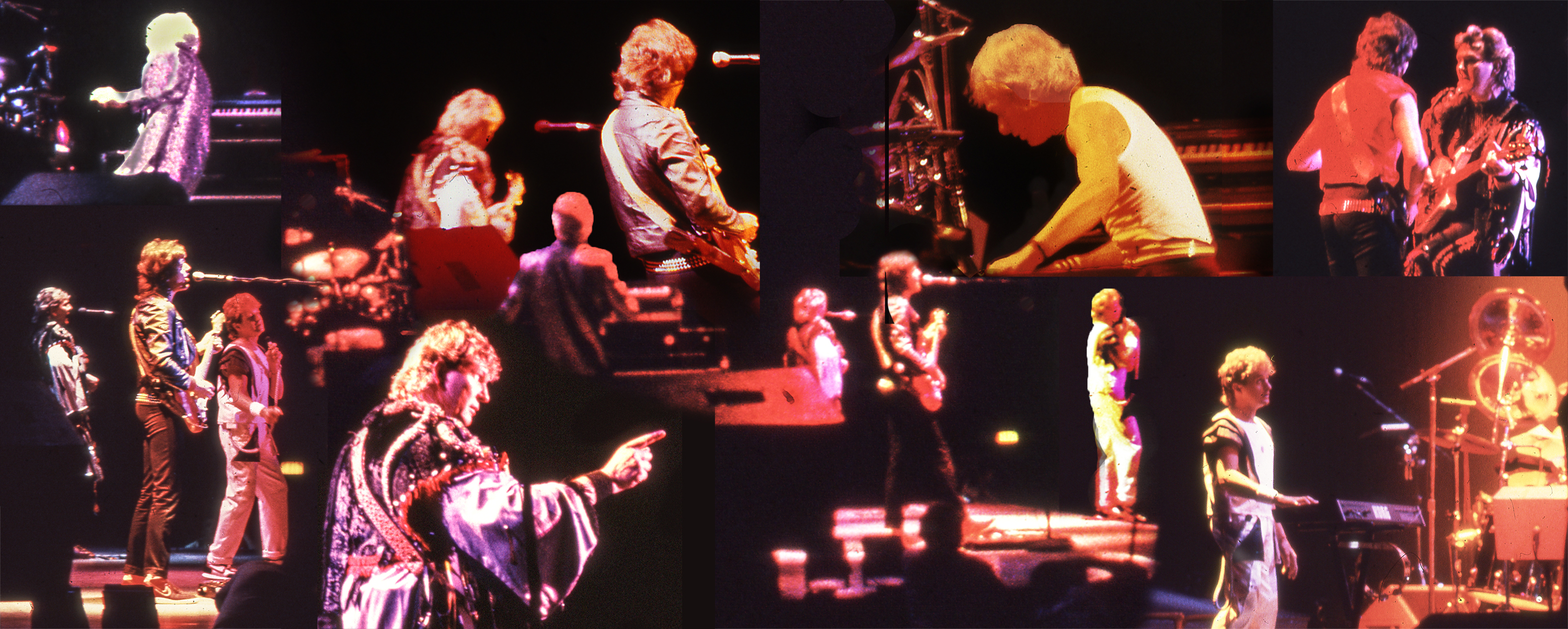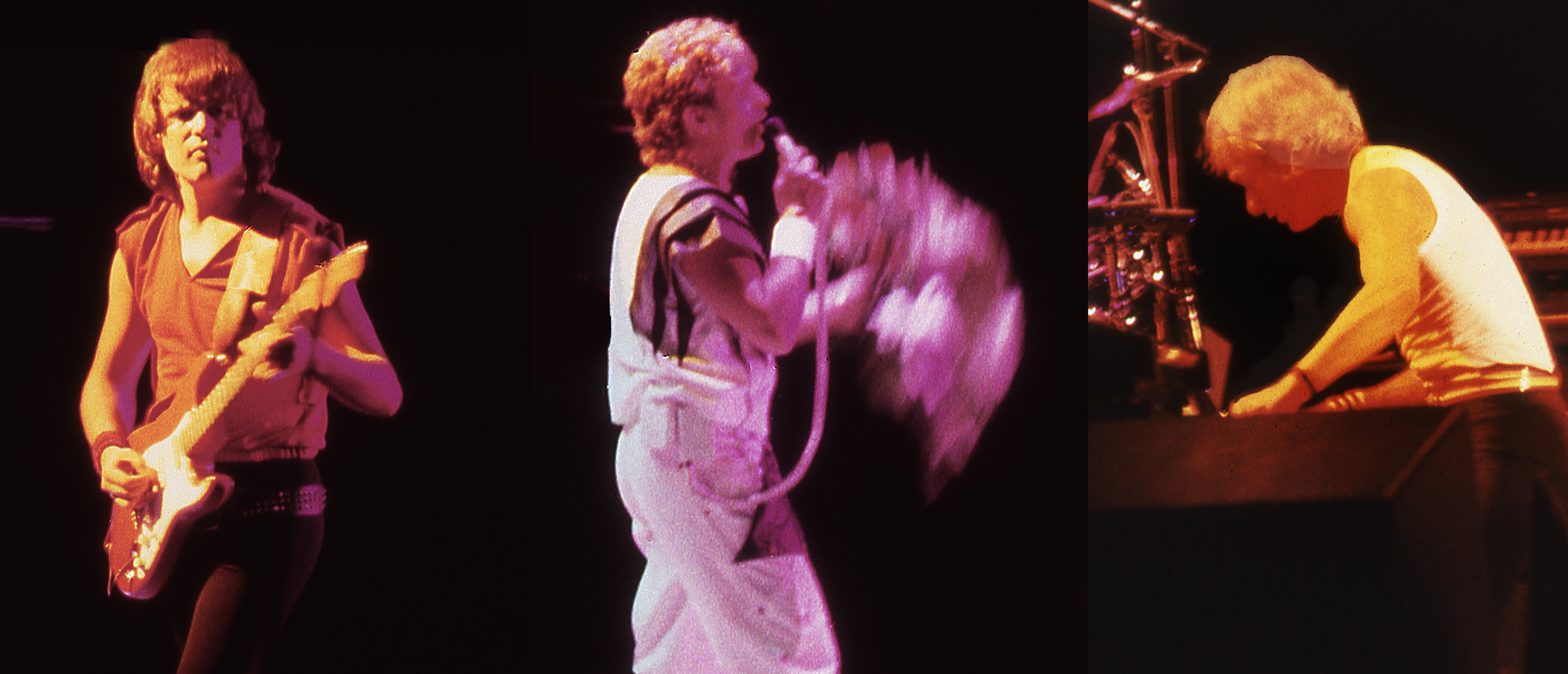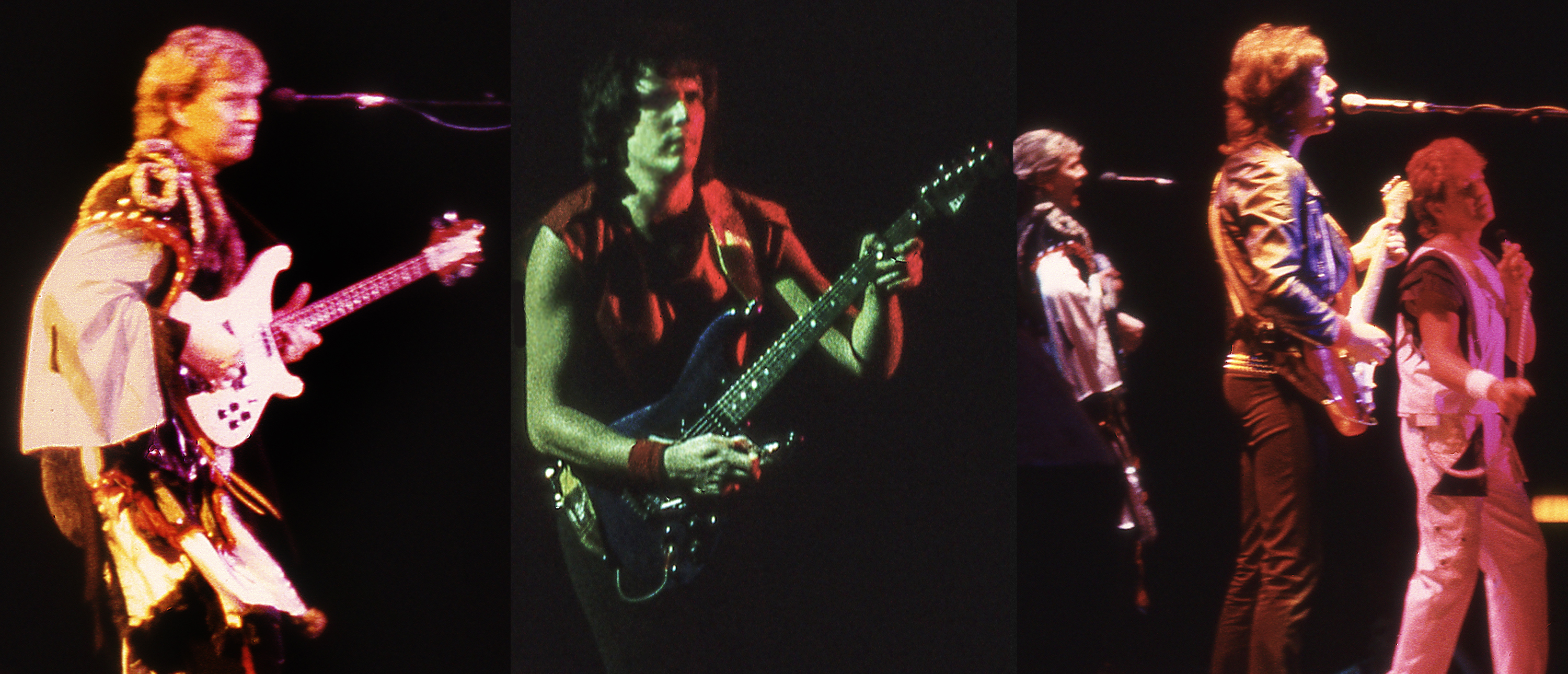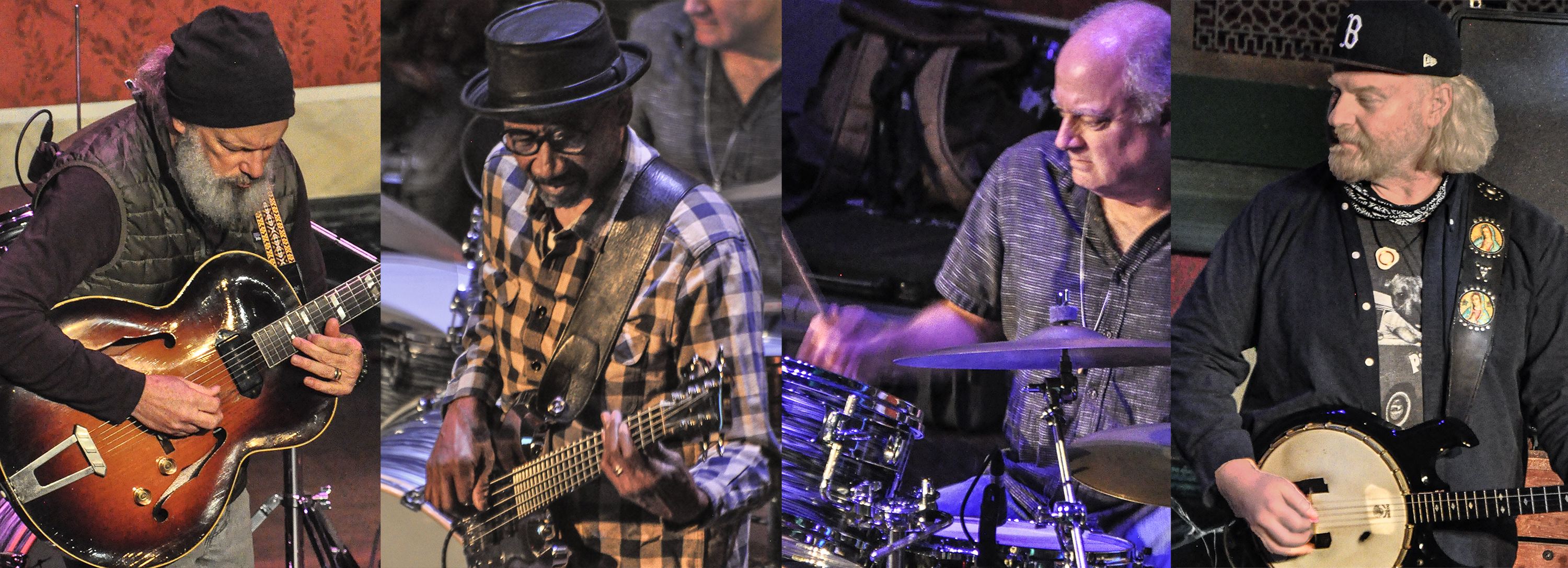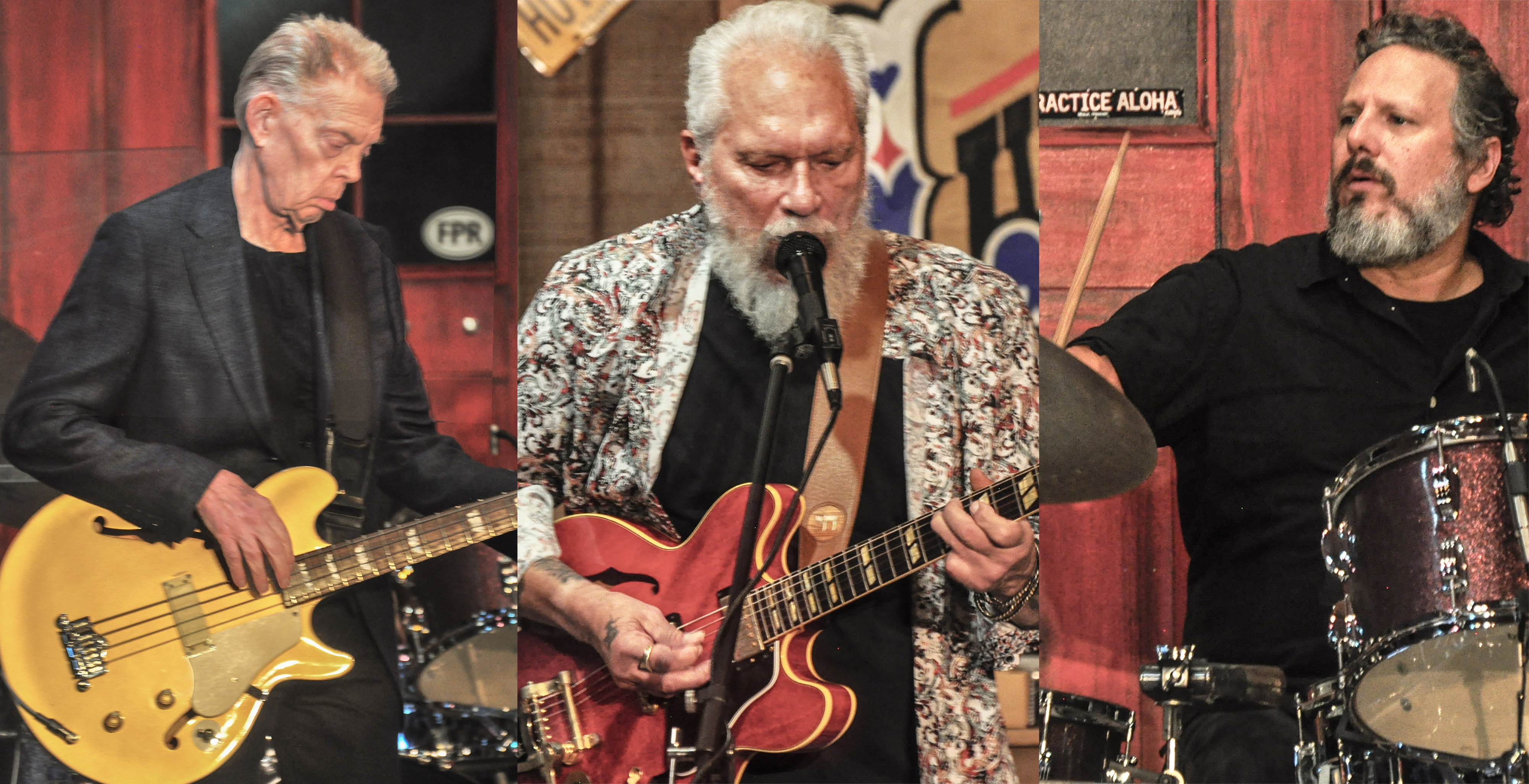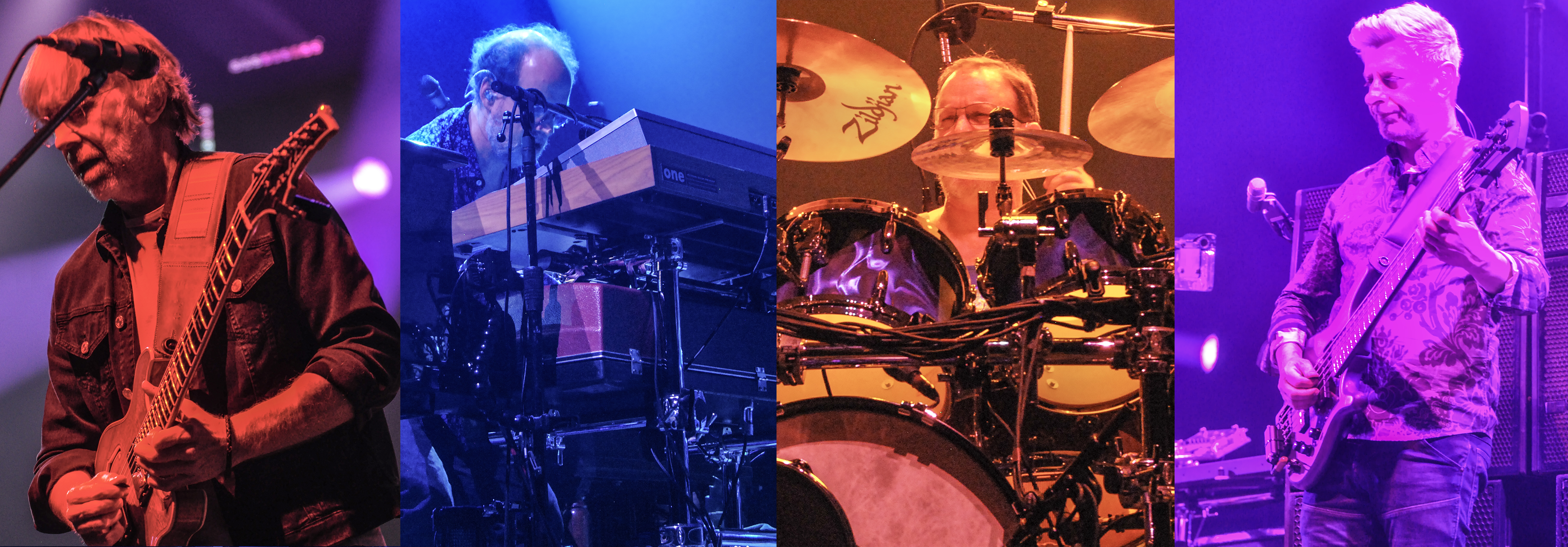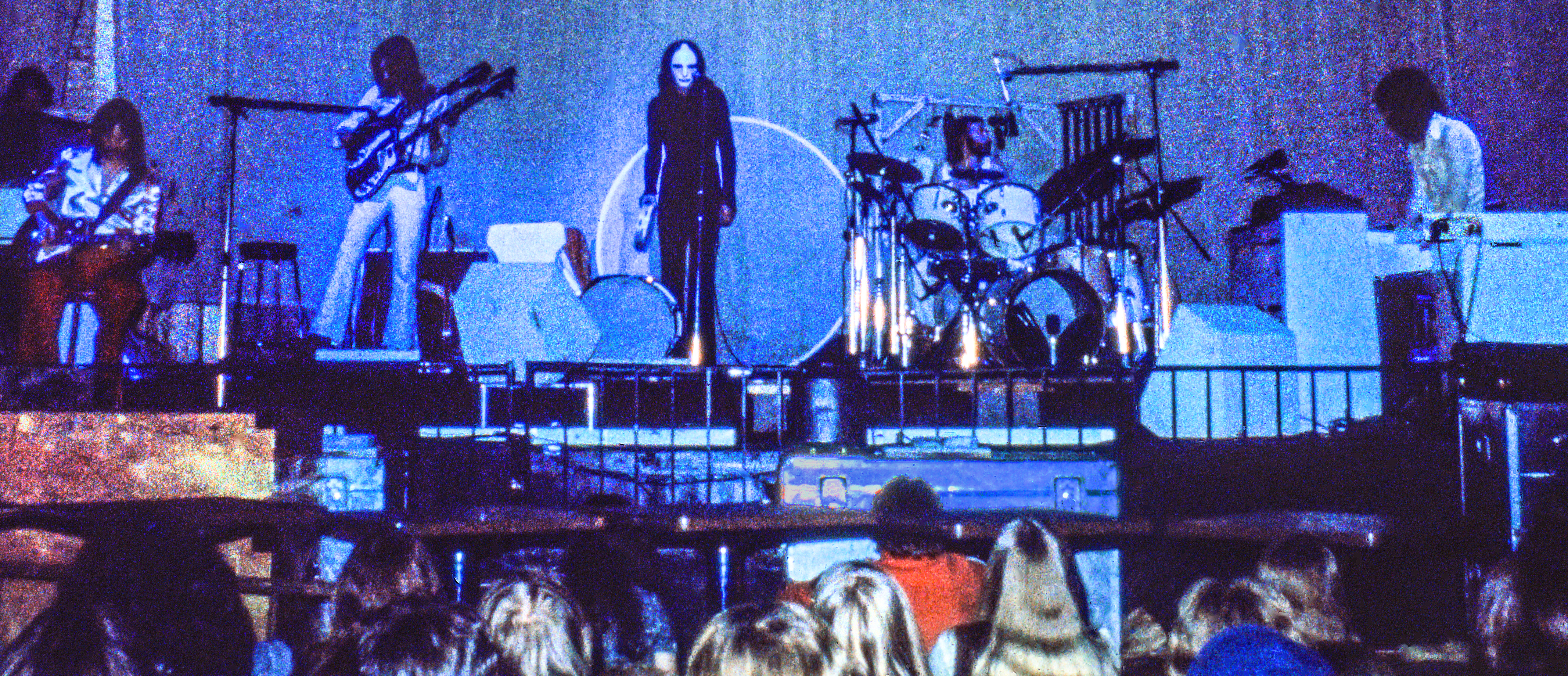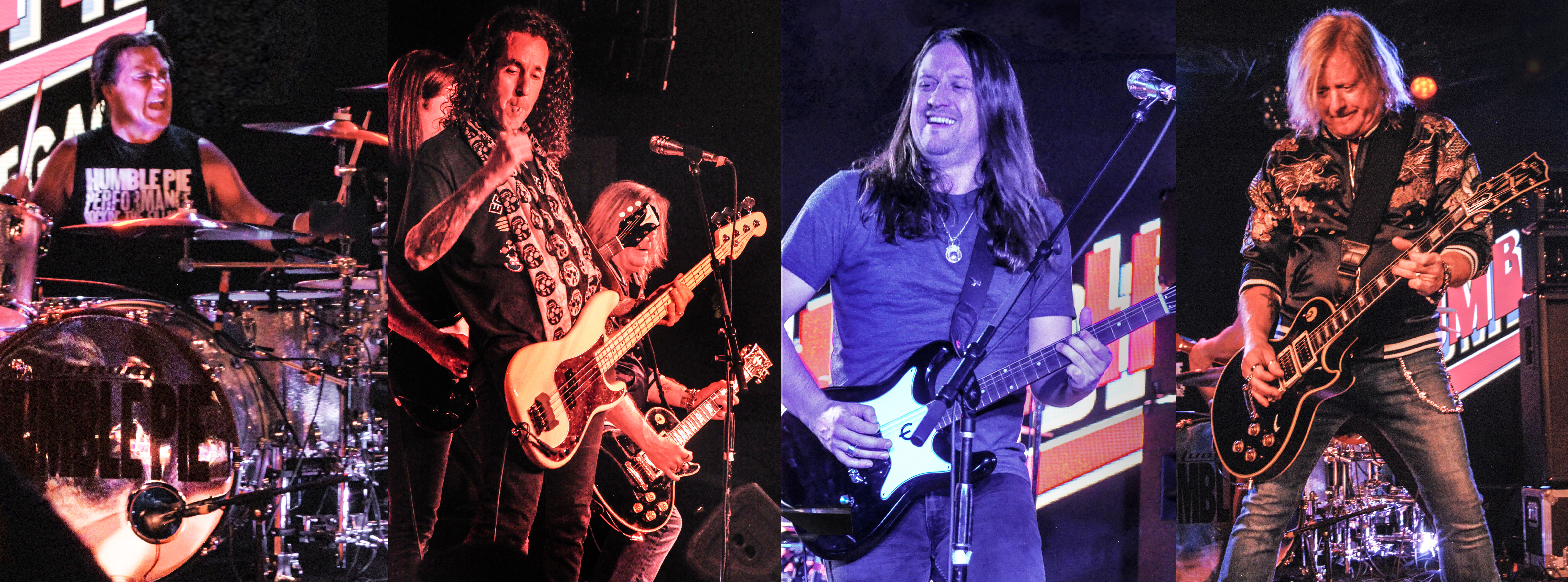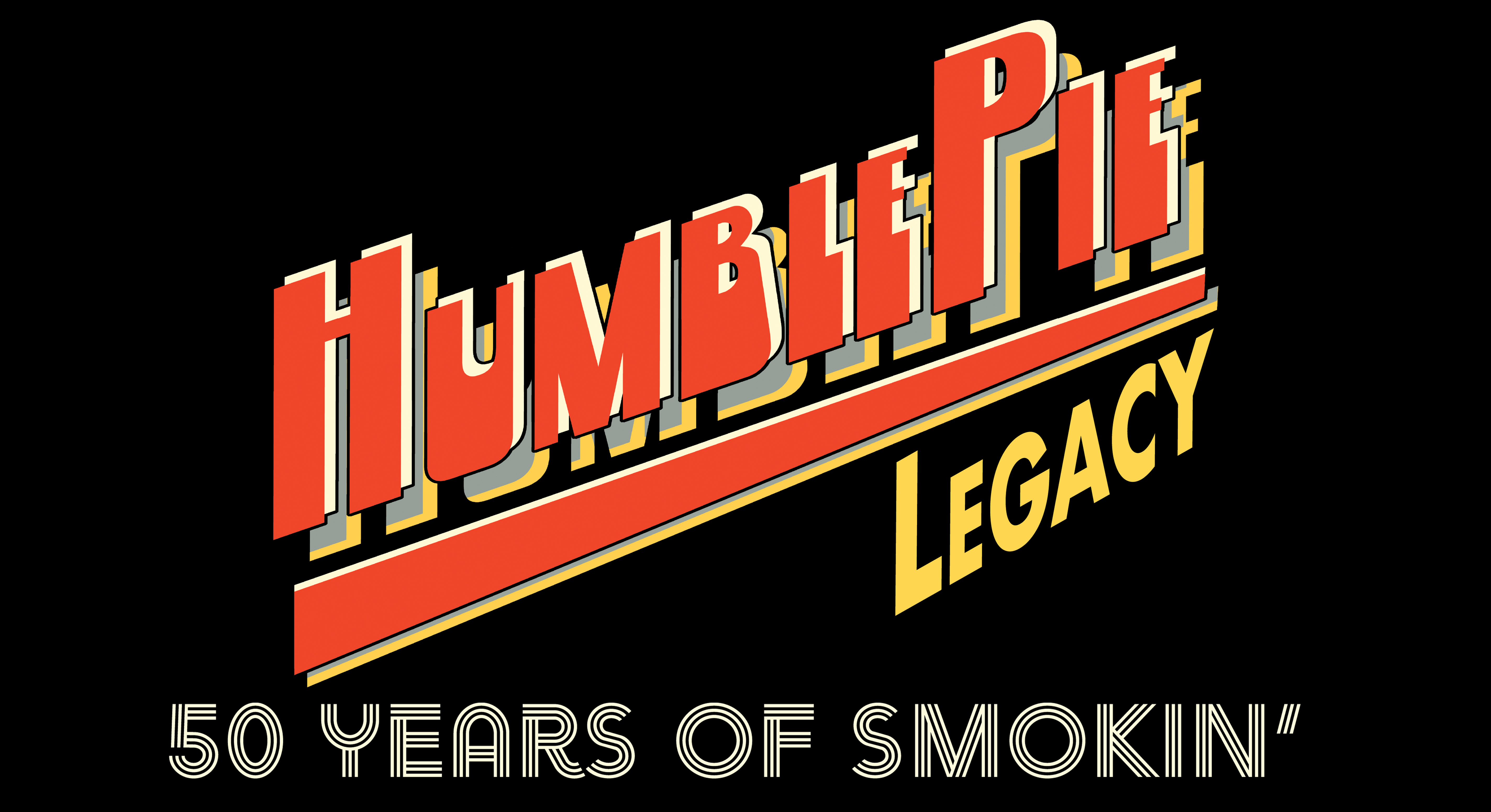It might be a musical stretch to even think of the British rock-pop band Queen and U.S. folk-rock singer John Sebastian in the same thought bubble. But it’s really an ironic numbers thing about them both that just came to mind. As Sebastian once sang in a Lovin’ Spoonful song, “there’s thirteen-hundred and fifty-two guitar pickers in Nashville.” And, of course, there aren’t that many Queen tribute bands in the world. Still, you might be surprised to find there are far more than a couple dozen Queen-centric bands who aspire to claim the crown of The Queen, while active members of the original band also still perform Queen’s music to this day. But in that indefinite time span before Queen found their way forward, one tribute band – the UK-based Killer Queen – was the first to step into the void and make their mark.
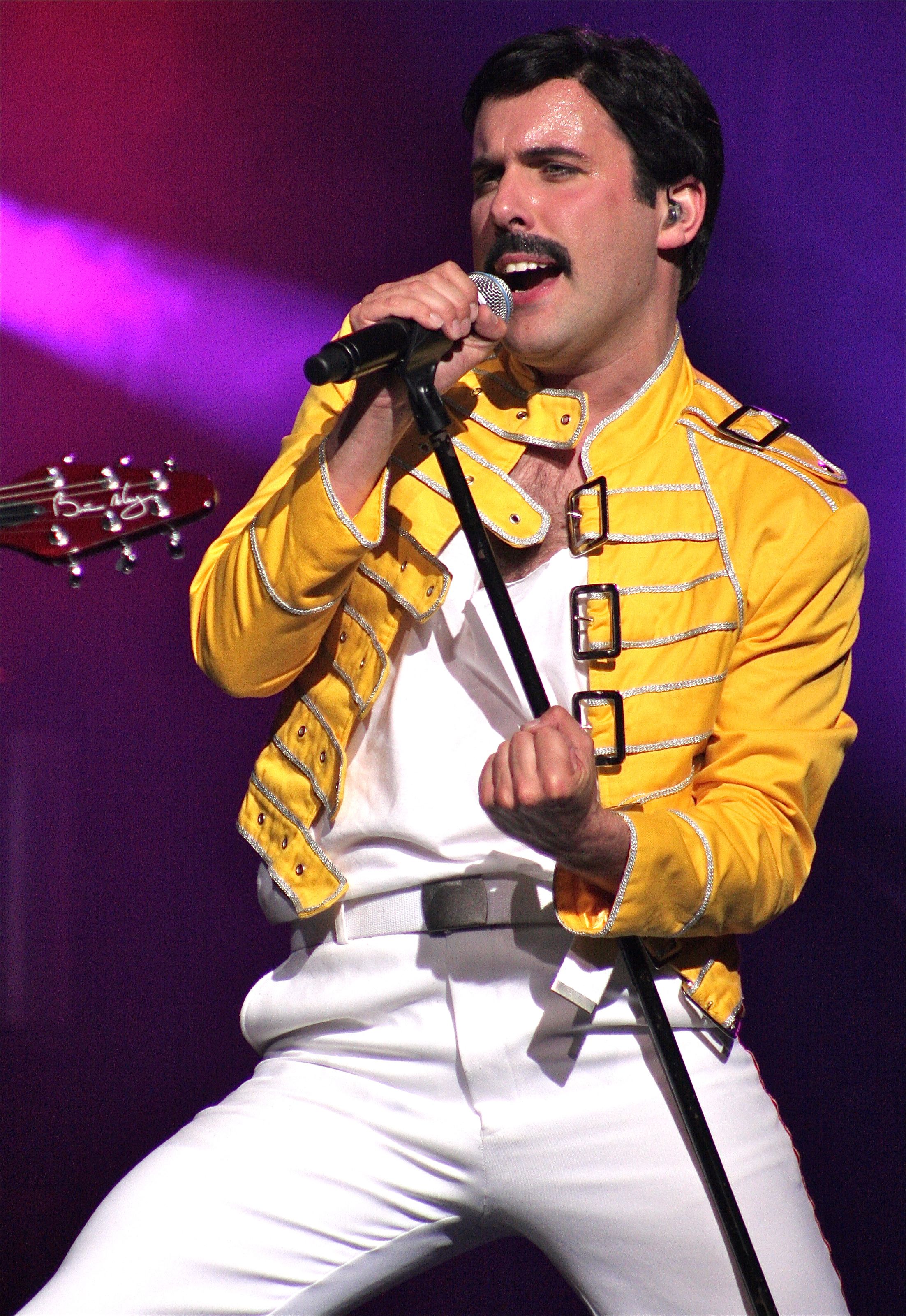
Of course, the classic Queen line-up of vocalist Freddie Mercury, guitarist Brian May, bassist John Deacon and drummer Roger Taylor had a celebrated career, spanning from their early beginnings in 1970 to their initial retirement in 1991, when vocalist Mercury passed away. There was a brief installment of the band with veteran rock vocalist Paul Rodgers, from 2004 to 2009. And since 2011, founding members May and Taylor have continued to perform as Queen with the acclaimed vocalist Adam Lambert. (Bassist Deacon has retired from performing.) But judging from the sheer number of successful Queen tributes, one must conclude that demand for live performances of Queen’s music is insatiable.
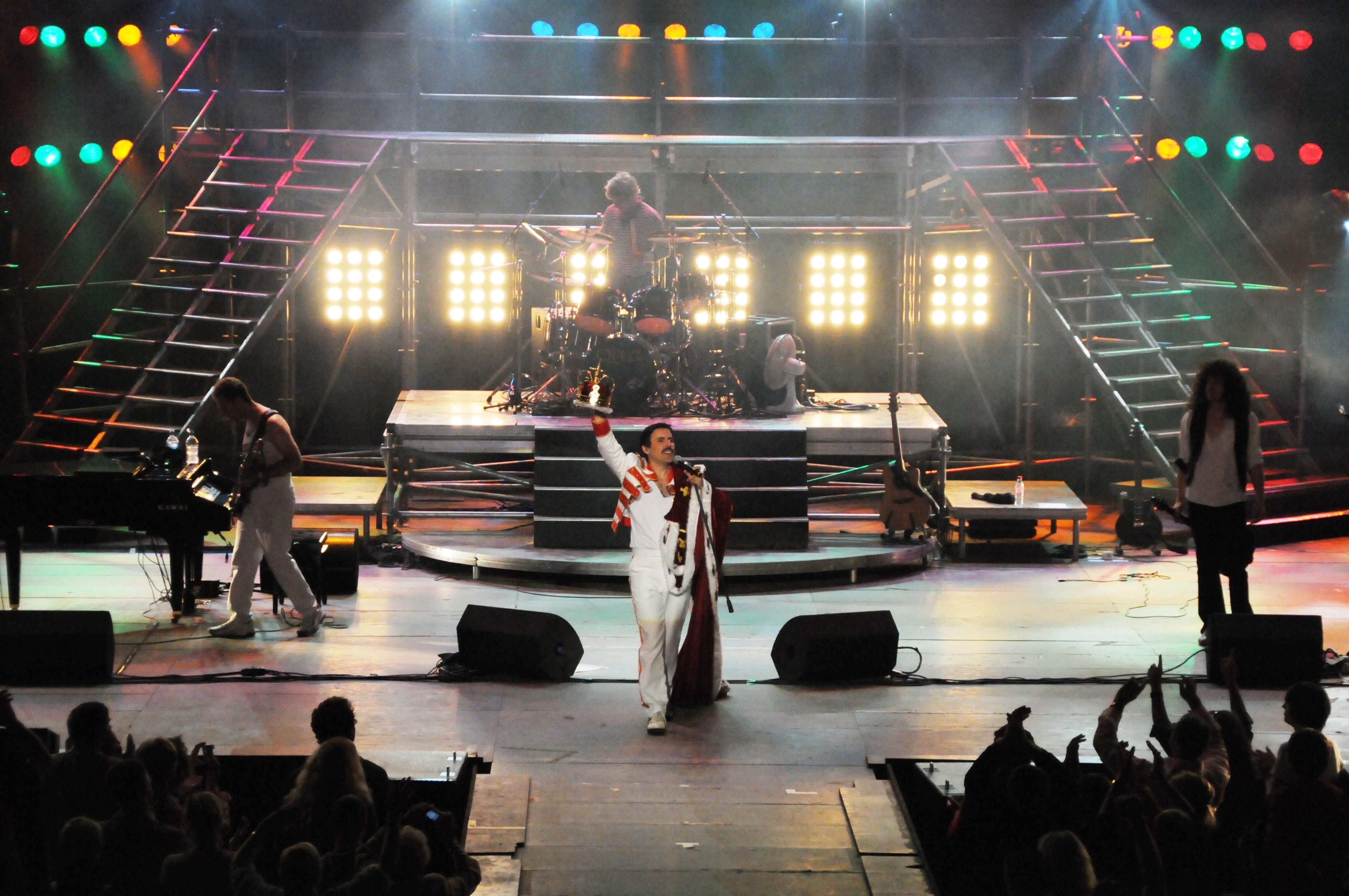
You might say, “Sure – lots of Queen tribute vocalists can wear the leather hat, drum major uniform and porn-star mustache of Freddie Mercury, but how many of them can truly replicate his idiosyncratic and highly theatrical vocal range and mannerisms?” And with so many competitive bands pouring themselves into the music of this legendary band and singer, how would you begin to separate the cream from the dregs and choose which one to see first unless someone would give you a head start?
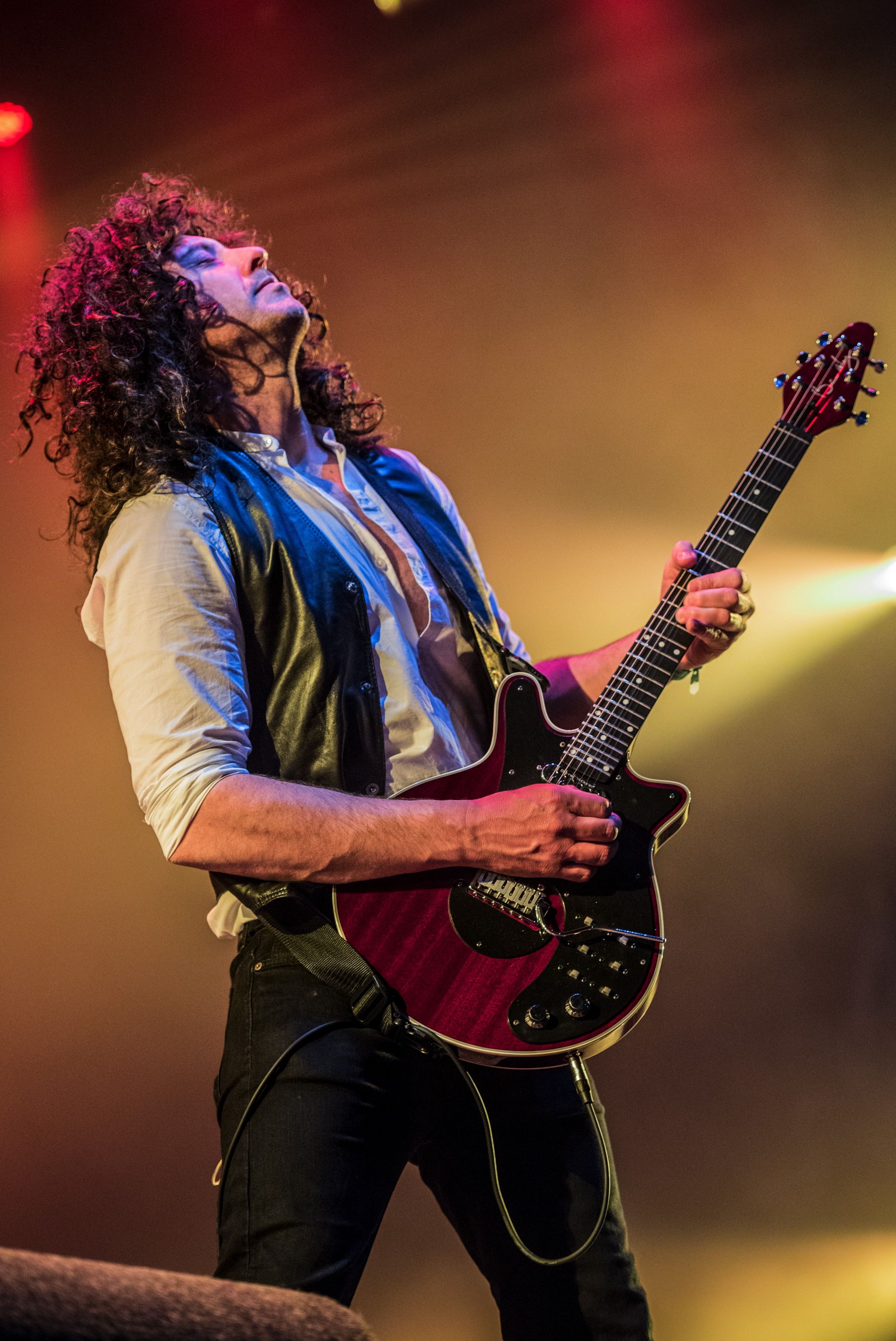
Perhaps longevity and continuous audience enthusiasm are the most reliable clues as to how authentic a Queen tribute band really is. With Killer Queen – fronted by founding KQ vocalist Patrick Myers since 1993 – Queen fans worldwide have, for more than 30 years, been able to experience a performance of Queen’s artful power-pop music in the semi-absence of the real thing. And KQ have grown from just being a fledgling boutique band, playing in small nightclubs and theatres, to an in-demand, internationally touring band that can sell out the very same larger arenas that Queen themselves could command back in the day.
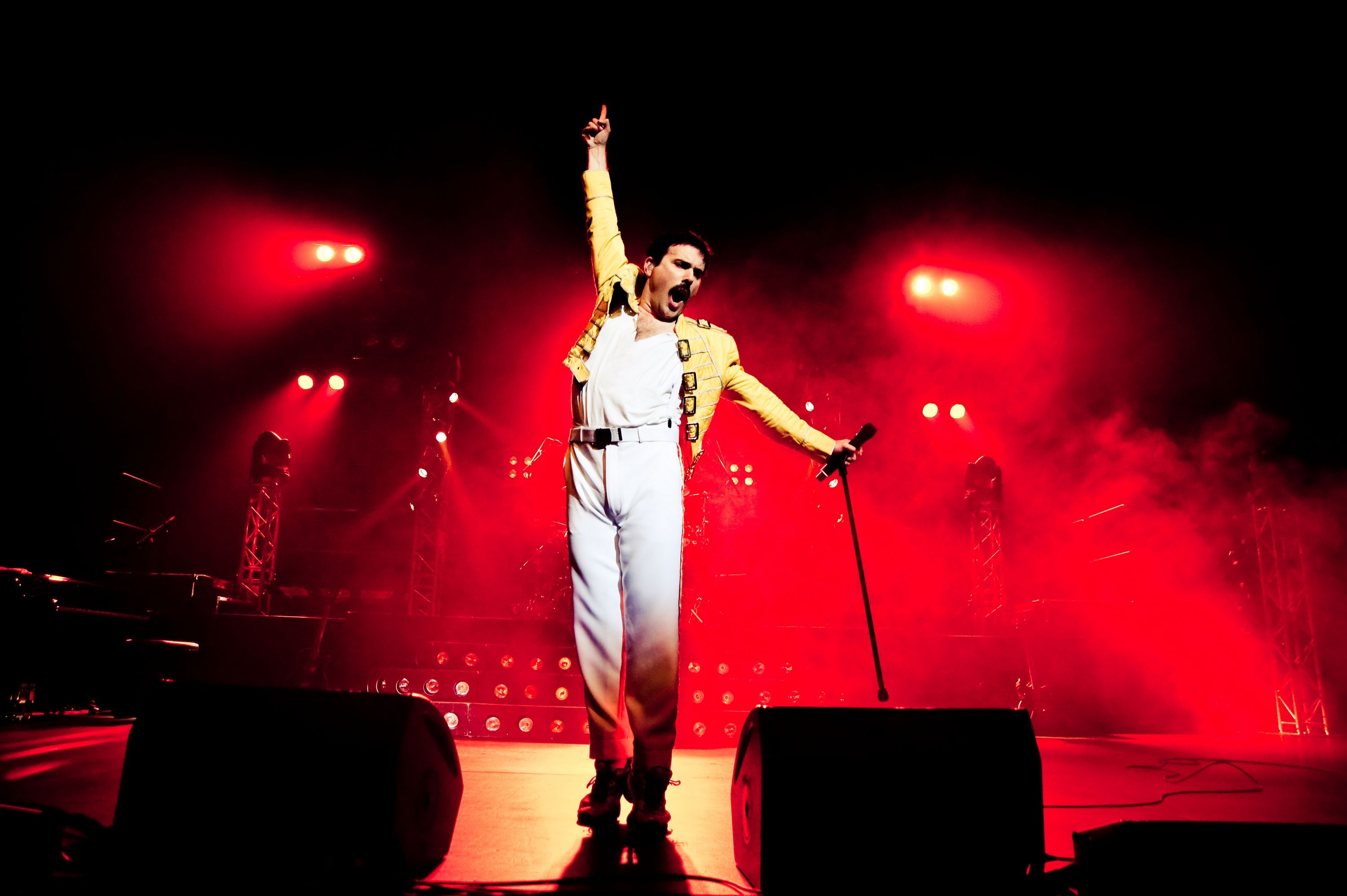
Starting in late February and running into mid-summer, Myers and his three bandmates will be taking their Mercury-centric show on the road for a two-part tour in North America. From Feb. 29 through March 30, the band will perform on 11 dates in the Central and Western U.S., including a special March 26 show at San Francisco’s magnificent Masonic Auditorium.
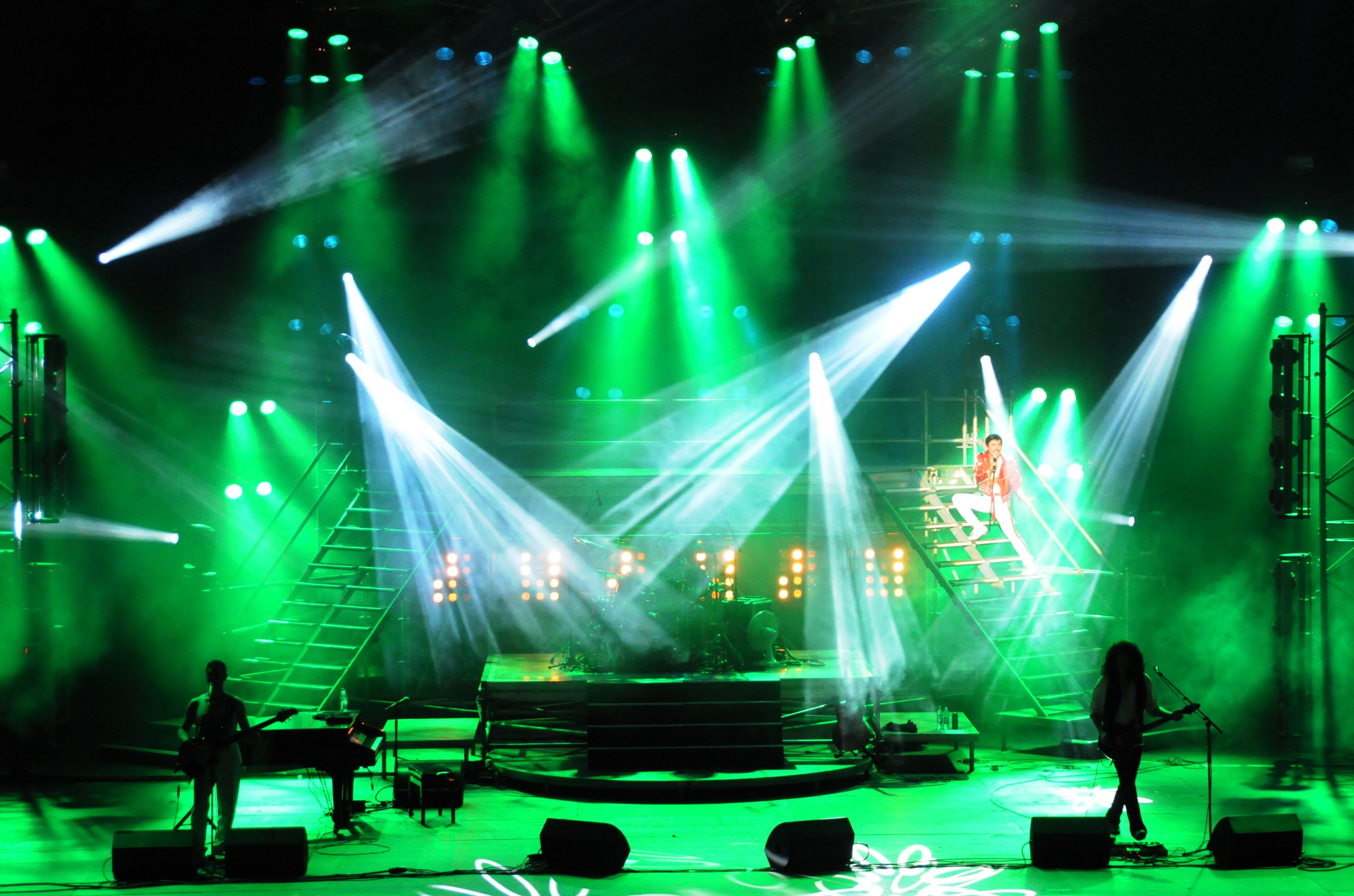
Then, from June 28 through July 28, KQ will add another run of 13 dates, encompassing cities on the East Coast in the Upper Midwest and even a couple of mountain states. (One of these latter dates will include the band’s return visit to Red Rocks Amphitheatre, in Morrison CO, on July 16.) All told, the two tour legs in the U.S. will include a total of approximately 25 dates.
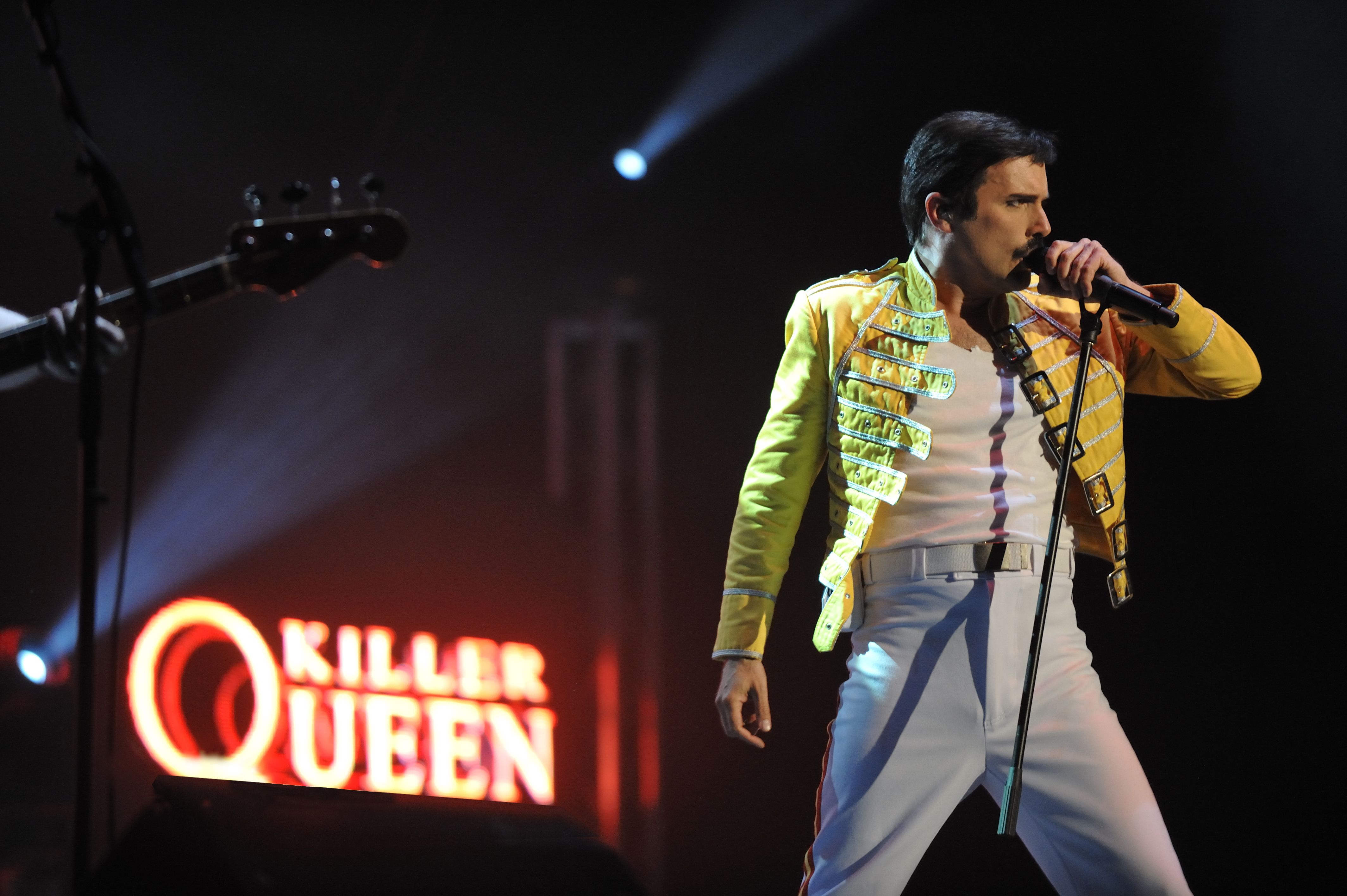
Before that, in mid-January and into mid-February, the band will also perform on a small batch of dates in northern Europe. Then, in the later Spring, between U.S. dates, they will return to the UK and Europe to squeeze in more shows. Singer Myers promises that there will also be another round of U.S. dates in the fall, between mid-September and mid-October. (You can see more details at https://www.killerqueenonline.com/tourdates). Obviously, a very busy year!
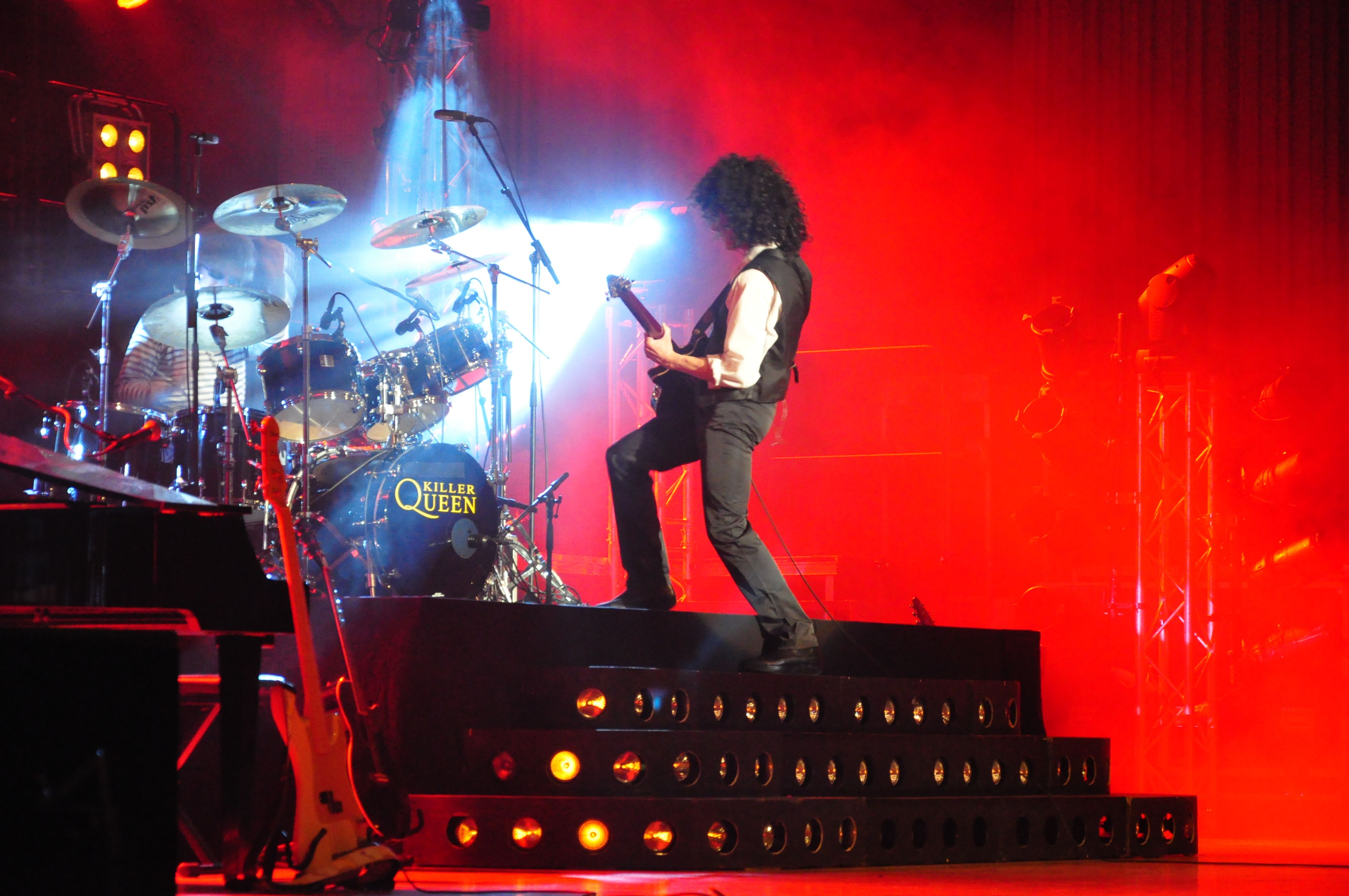
In early January, Grateful Web had the opportunity to get the back story on Killer Queen via a quick phone chat with KQ main man Myers. He shared a look behind the scenes and at what it takes to keep such a high-key tribute act like this going year after year. As you’ll read, he said that he draws great personal inspiration from the mythology of the late Queen frontman Mercury and this one-of-a-kind power-pop band. Also, as Myers noted, he and his bandmates are committed to always making each show better than the last. Because, y’know, also like John Sebastian and the Spoonful, Killer Queen believes in magic.
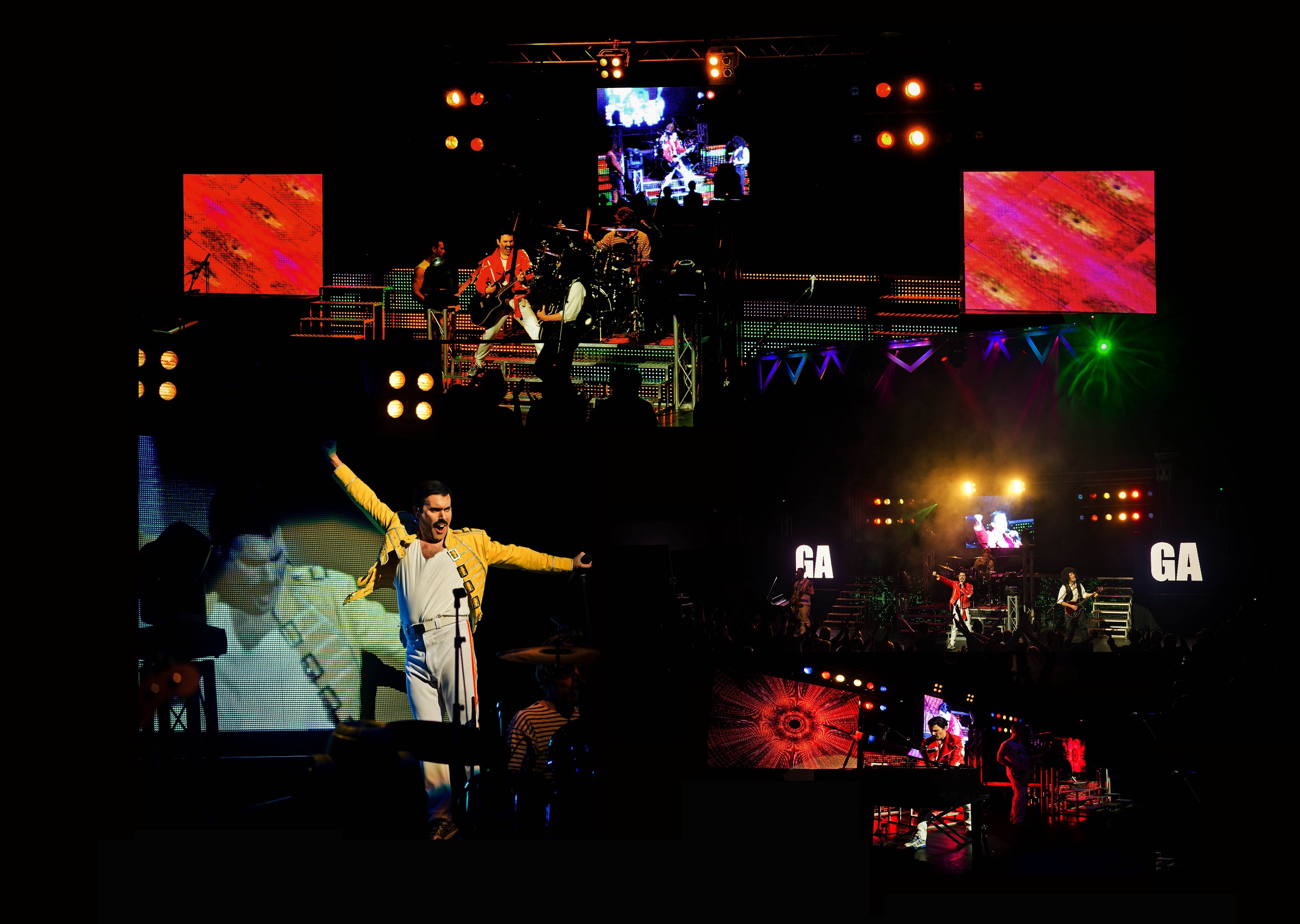
GW: Great to talk with you, Patrick. Hoping to touch on many different aspects of your band. I know from some of your bio materials that you never had the chance to see Queen when Freddie [Mercury] was still performing. But I’m curious to know about your personal history with Queen’s music, such as when you first discovered them, if you’ve ever met any of the members, etc. Also, a little bit about your fellow band members in KQ.
Myers: Thank you, Sam. Looking back to when we started in 1993, the [original musicians} and I were all students at college, and it took off so fast that not everyone could keep up with their college work and the demands of the band. It was only a year and a half after we had done our first show that we were then doing a show at West End, which is like London’s version of Broadway. So that’s how fast it took off for us, and we were just students. At the time, we had no idea it was going to be like that. It’s not the same band now we started out with, but the band I have now is the same one I’ve had for many, many years. Great, great performers, fantastic to work with. And – I might add – great to hang out with, which is kind of crucial if you’re going to tour the world together!
GW: Yes! Very true, since being in a working band is like being in a four- or five-way marriage. . .
Myers: Well, to just back up to your earlier question about discovering Queen – I had been aware of different songs that I liked but, as a small kid, I wasn’t aware that they were all by Queen. And it all hit me when I was 13 or 14. I had discovered The Beatles through my parents. Thought they were fantastic, but I knew they had [dissolved] and were never going to get back together again. So there was a finite amount of music from them. I was looking for someone or something that was as good as The Beatles, but, y’know, from my time and generation, in the ‘80s.
I remember a friend of mine set me up with headphones one time and said, “You’ve got to listen to this – You’re going to love this band!” And it was was Queen’s Greatest Hits, and I just couldn’t believe it. I already knew so many of these songs! It was Freddie’s voice and Brian’s [May] guitar, the fullness of the sound and the production was all so impressive. To me, the songs were so inventive and varied. I was, um. . .gobsmacked, I think, is the word!
So by the time I was in school and we put the band together, we started playing at assemblies and we did our own songs, but we put Queen songs in as well. But I had already been learning and playing their songs before that, so that wasn’t accidental.
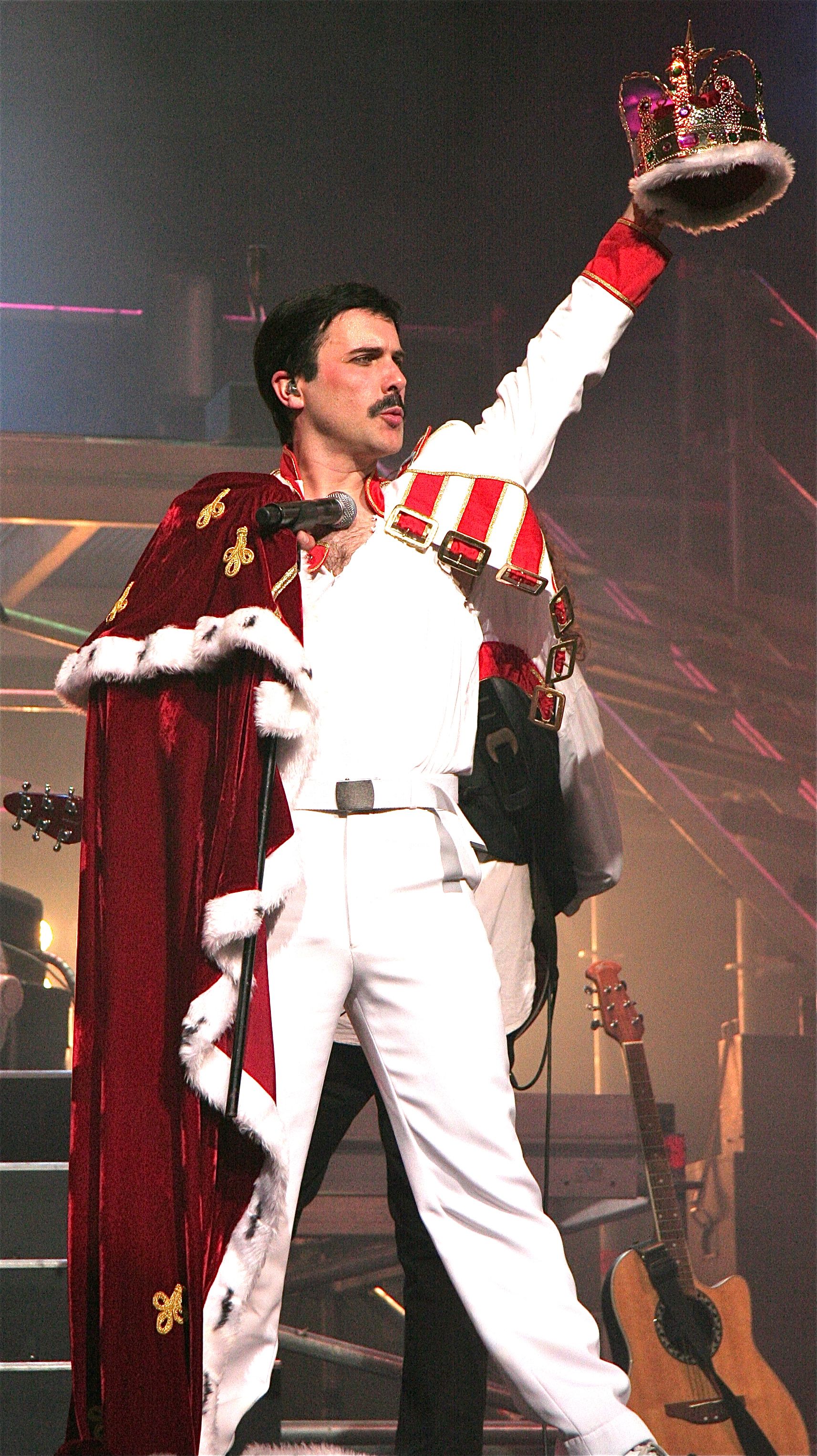
GW: I’m curious about your own musical training and knowledge.
Myers: In the band, I not only sing but also play keyboards and guitar. And I trained as a classical guitarist and studied composition. So I was very interested in the classical element of Queen, too, how musical they were. For example, the counterpoint between voices, the interaction between the guitar and bass, the dynamics. All of that was so intoxicating to me, and, y’know, I just wanted more!
And so, as far as Queen goes, I never imagined that it would be over so soon for them. I thought they’d just go one producing more magic. I thought they were invincible! When I went away to university [in the early 90s], I had just heard that Freddie was ill, and then not too much longer came the news that he had died.
It was such a shock for all of us. We didn’t really know what to do except to sing their songs together. We had some instruments at school and we started working out some songs. We [lined up] some gigs at school soon after that and moved into the local bars, and some festivals in our hometown. But then I moved to London and was studying drama and acting. I had a rudimentary idea of what it was like to be a musician in a band, but then it struck me, “Why don’t make costumes and dress up as Queen and do a show that way?”
So it was doing a salute to Queen, if you like. But at the same time, it was also the early beginnings of the tribute band scene. There was one early band that dedicated itself to the music of Abba (Bjorn Again), and I thought they did a brilliant job. And I thought maybe we could do the same kind of thing but with Queen, so it would be a way of creating a feeling of being at a Queen concert. We just thought – at the time – that there’d never be another Queen performance. So our first desire was to create that feeling of being at a Queen show, that emotional connection with an audience, that sense of celebration.
But, obviously, we were one of the very first Queen tribute bands, and it all took off very quickly for us. Within a year, we had gone from just playing local clubs to [bigger shows] at the West End. This soon led to being on national TV and getting asked to tour in [major cities in] Europe. And, of course, the door finally opened for us in America, too, and we’ve toured extensively here, too, since 2016. We’ve performed at Red Rocks and on [the PBS TV music show] Austin City Limits, and on the coming tour we’re scheduled for a major show at the Masonic Auditorium, in San Francisco. [On March 26, 2024.]
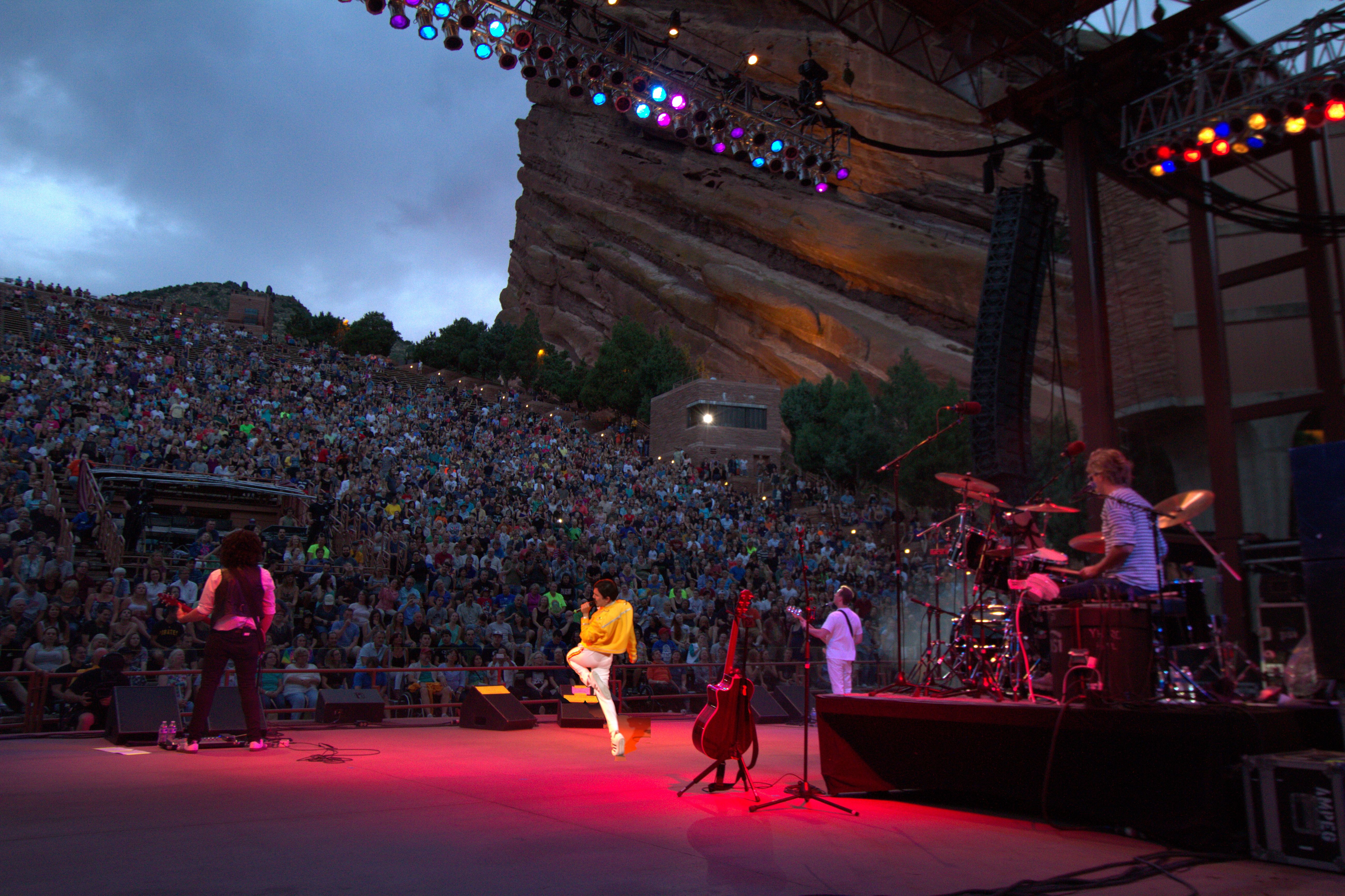
GW: When you started playing larger shows, you were moving more into theaters and music halls, and in time, even arenas, right?
Myers: Well, yes, oddly enough, we’ve found ourselves playing in many of the same larger venues that Queen themselves used to play in. Many of the theaters are around the 3,000-5,000-seat size, but we’ve also played to audiences as large as 25,000.
GW: From what I’ve seen in online clips, I know you have a very visual show, with high production values. There’s one very nice ten-minute sampler, with lots of song excerpts, that’s gives a lot of insight into what your shows are like. So I’m curious about how you scale your production for venues of different size.
Myers: It’s all about capturing that electrical sense of the experience, the atmosphere in the room that Queen was so good at. It’s almost like the crowd is part of the performance. So, basically, you design shows for the venue you’re playing. Obviously, if we’re playing an 800-seat theatre, there’s no way to fit in[big lighting rigs] and projection screens. You simply can’t do that. So we have a different version of the show for that kind of theatre. So, no matter where you see us, you’re going to get a proper show that still looks fantastic. very vivid and colorful – great lighting and effects!
GW: Interestingly, when you started Killer Queen in the early ‘90s, many tribute bands we know today were still in their early, formative stages. You mentioned Bjorn Again, and there were also now-long-running groups such as the Australian Pink Floyd Show and the Genesis tribute group, The Musical Box, who were just getting started in that time period. So you were all pioneers, inventing the blueprint and writing the rules for how to produce tribute shows. Obviously, tribute bands are everywhere now, and there are tons of just Queen tribute bands. I’m curious where Killer Queen ranks among all of those bands, even though you were the first. For example, are you officially recognized and approved of by the Queen organization?
Myers: Queen keeps all the tribute bands at arms’ length, really. They even have their own official production called The Queen Extravaganza, which has been active for about eight to nine years. Completely understandable that they don’t interact with any of us. So we don’t judge ourselves by where we rank with Queen, because it’s impossible. It’s the feedback we get from Queen fans themselves – the people who have come to our shows and have really enjoyed themselves – who maybe never saw Queen before but tell us in social media and emails that they now feel as if they have. That’s the validation that we look for.
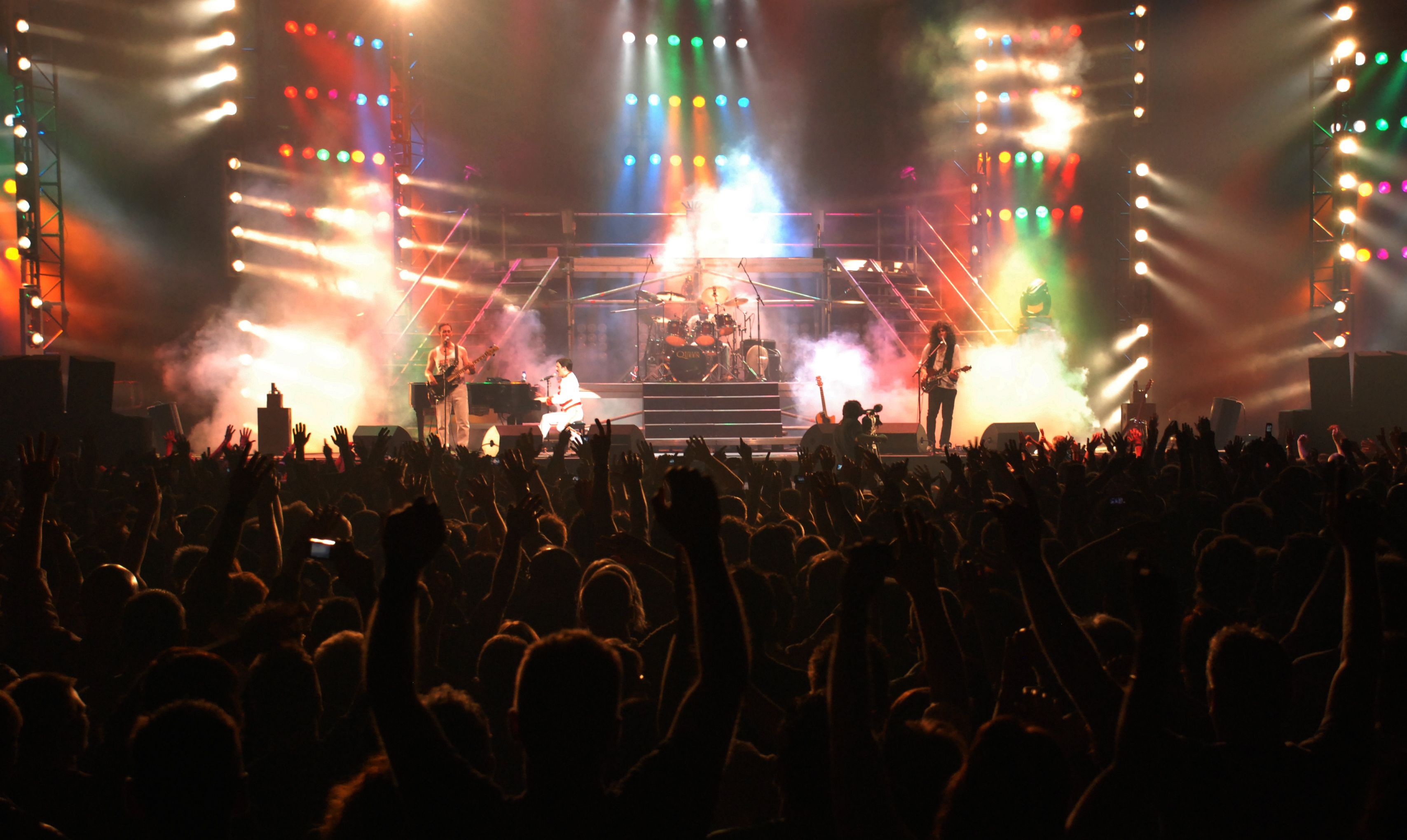
GW: Some tribute bands do upward of a 100-150 shows per year, but they also sometimes have rotating personnel for different legs. How many tours/dates does KQ do each year and do you keep the same players at all times?
Myers: We schedule about 100 shows per year ourselves, not too much more than that, because of the amount of travel involved. We’re based in the UK. We could probably closer to 150 if we just stayed in the U.S. and traveled around [in North America]. We have fans all over the world and we do like to travel, so we need more time to get to different corners of the globe. We do like to get home for short periods, and then we go back out. We do keep the same line-up, although there are a couple of folks we keep on back-up in case someone gets ill. We’re not like some of those tribute bands that operate almost as a franchise, with a different version of the band that tours in Europe from the one that tours in America.
GW: In terms of you personally emulating Freddie’s persona, I know you not only recreate his vocals but also play instruments and go through a lot of costume changes. I understand from other interviews with you that you’ve watched a lot of film footage of Freddie to study his stage presence. So did you also seek out theatrical coaching or have you drawn upon your own experience in drama and just learn Freddie’s postures and gestures from watching those films of him?
Myers: I’ve done it all from my own research and observation. My own acting experience gave me a lot of insights. But, the thing is, you absorb only what you need to know about the songs and the show. But I’m also very interested in Freddie as an artist, as a person. He had an amazing ear for composing and arranging songs. And he also had a fantastic artistic eye as well.
I did seek out guidance from his costume designer, Natasha Korniloff , to learn about his [artistic vision]. Just hung out with her and listened to stories about what he was like as an artist and a person. It’s really about absorbing other information that adds to the picture. Really, I just find Freddie fascinating and consider him a genius, in his own way. Such an interesting character, and it’s always a pleasure for me to jump into that energy on stage.
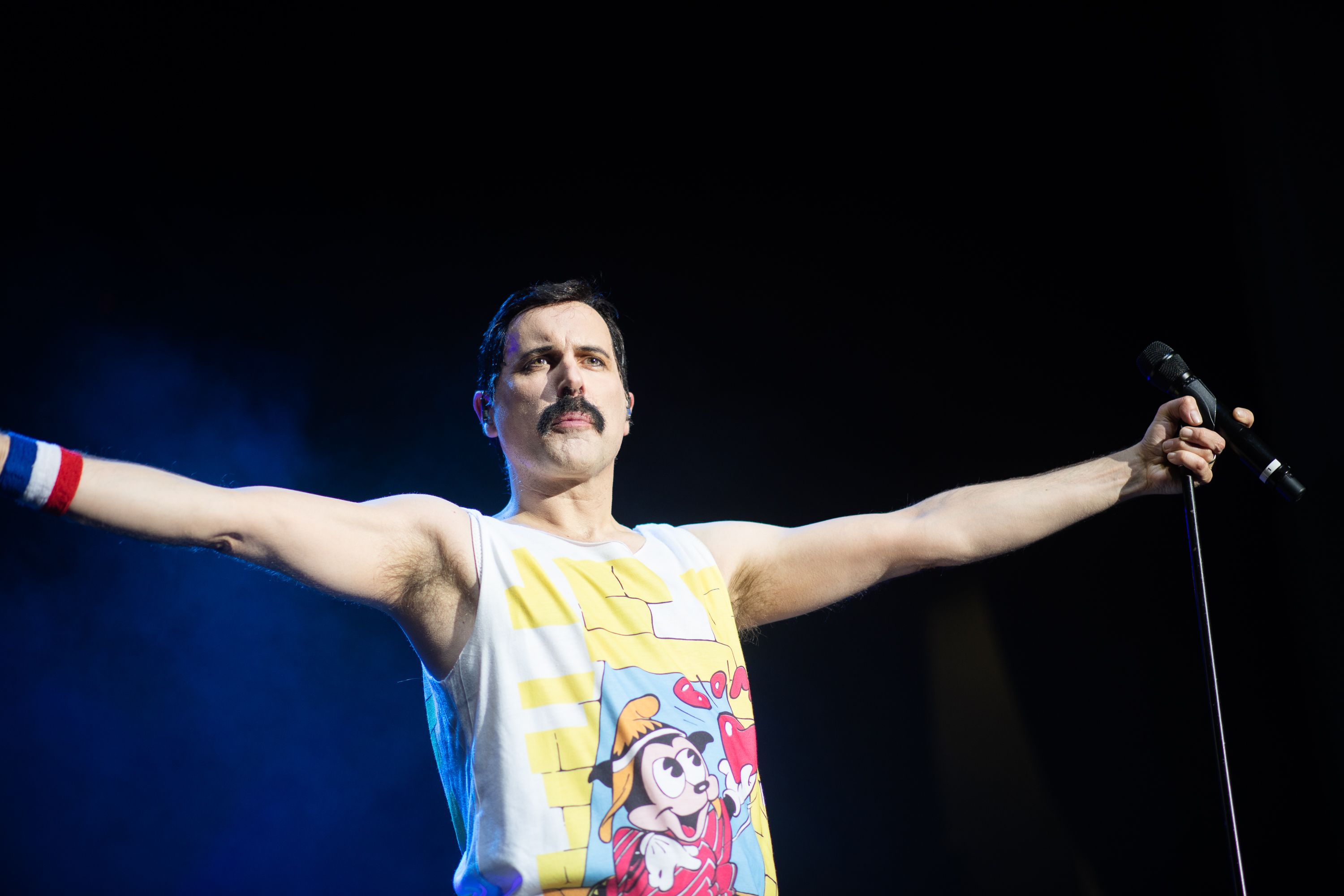
GW: I’m curious about how you and the band replicate some of the more complex arrangements, especially with the vocals on songs such as “Bohemian Rhapsody”. I know everyone in the band sings, but do you also work with backing tracks or have you re-arranged it in anyway to make it easier to sing live?
Myers: There are things you can do production-wise to flesh out the vocals, with audio processing. Harmonizing filters that help to double the vocals, that sort of thing. I wasn’t sure we could do “Rhapsody” live until I saw a band – and you’ve got to spell this one right – called the Funkin Bastards. I heard them do it and I realized what they were doing was [beefing up] the other musical phrases that the musicians were playing behind the vocals, to underscore it all and make the sound bigger. That makes it more manageable.
GW: Some tribute bands recreate actual shows, playing a specific setlist of a certain tour or full albums. Could you talk about how you put together the setlist and how it changes – or doesn’t – from tour to tour? For example, do you keep a main setlist and then rotate a few different songs to keep it fresh? And do you ever do special limited-run or album-themed shows, such as A Night at the Opera?
Myers: Yes, we’ve done special shows, at certain times. When we played the West End (in London), we didn’t play whole albums, but we’d just do the 1970s Queen with the ‘70s costumes in the first half, and then we’d switch to the ‘80s era in the second half. But, actually, we stopped doing that after a while, because a big part of the pleasure for us of doing Queen is the mixing and matching the songs of different time periods within [one show].
It’s how the songs of different eras play off of each other rather than separating them out into something more linear. I think it’s more fun musically and, as a show, it has a bigger impact to mix up early Queen with things that were a few more years more down the road. So even though it can be a lot of fun to do a full album, it’s also more predictable – and maybe not as exciting – for the audience. I think Queen themselves liked to mix it up and to keep that element of surprise for audiences.
GW: So how often do you rotate your setlists? Do you stick with one set for a long time or drop songs in and out of certain slots in the show?
Myers: Yes, we do [regular spot changes] in the show. As we go through the year, it’s really an ever-changing feast. Obviously, it has a lot to do with where we are playing. Certain songs, for example, fly really well in Europe, and then when we’re playing in the U.S., we’ll shift the set more toward what has been popular here. So it’s really centered around the geographic locations.
GW: Could you talk a bit about the vocal demands of a show, how you train for a show, and how you manage the length of a show or the time you spend singing?
Myers: I’m guessing that most of our shows are about 100 minutes or so [1 hour, 40 minutes]. We try to stick to that, sometimes go a bit longer. We do a few songs as medleys, and there a few solo breaks in the show. For example, there’s a drum solo, and our guitarist does [an extended] “Brian May” guitar solo, where he moves through a lot of motifs [excerpts of different songs] and creates a Wall of Sound with his effects pedals. Some of the times I go off stage for a costume change gives me a break, too.
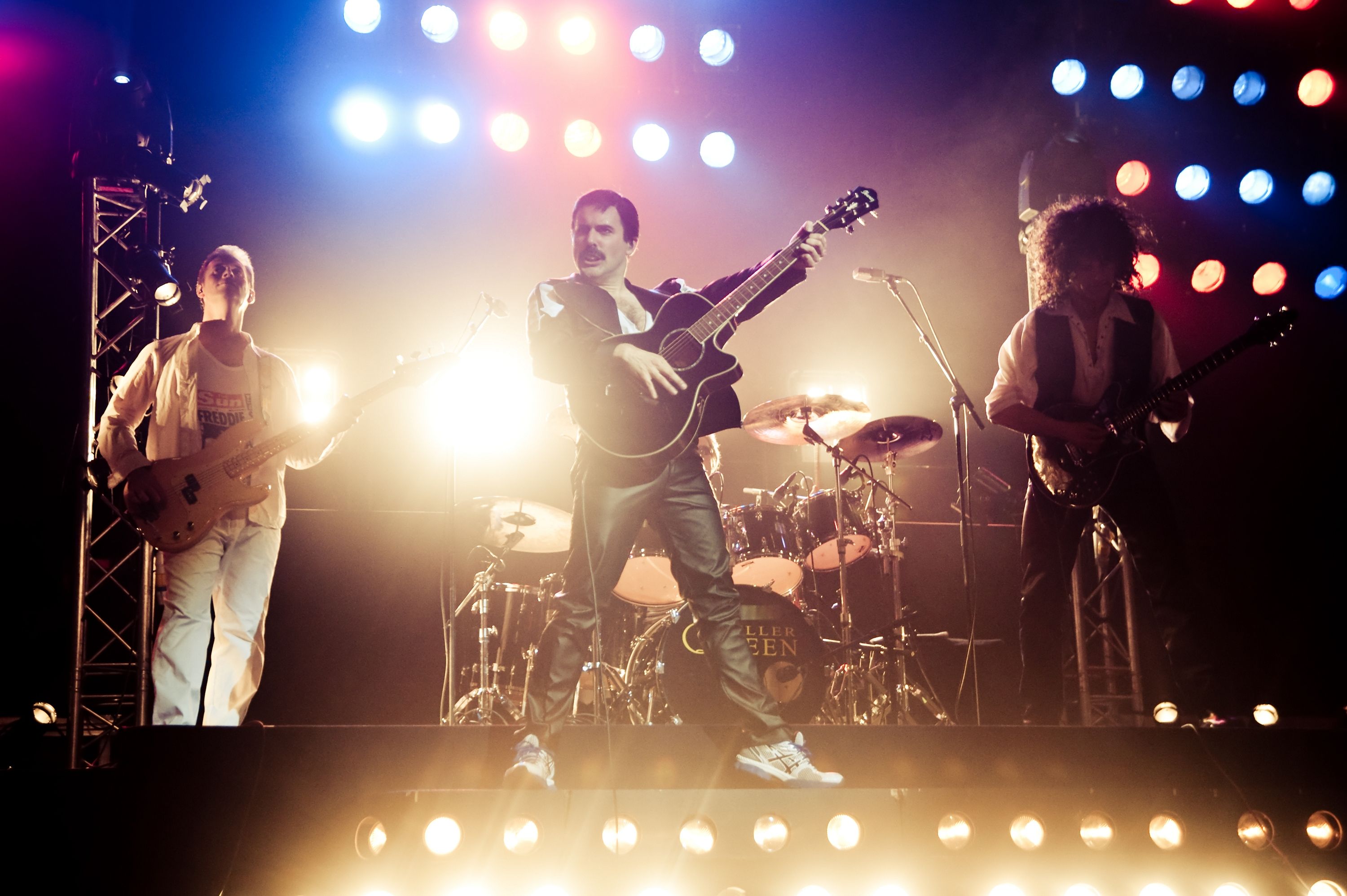
GW: There are some tribute bands which go to great lengths to use only the same vintage instruments (specific guitars and keyboards, rare-brand tube amps, etc.) to recreate the original live sound of their chosen band as closely as possible. Do you and KQ think this is critical to your sound?
Myers: Yes! Our guitarist plays with a Brian May [special edition] replica guitar, the bassist uses a Fender bass like John Deacon, and our drummer tries to tune the toms to the same resonance as Roger Taylor. But for keyboards, we’re using modern digital instruments. I don’t use the same [type and brand of] piano as Freddie used to play, though. He used to tour with a baby grand piano, but I use a digital piano instead. Everything else we try to keep as authentic as possible, so it sounds and feels like Queen to everyone in the audience.
The question that our guitarist gets asked all the time is whether he plays with a six-pence (using a coin as a guitar pick like Brian May). In fact, [the KQ guitarist] used to do that quite a bit, but now he plays more with his fingers. The six-pence has a nice, crisp attack to it, though. That’s one way that Brian gets his unique sound.
GW: I know you’ve attended a show of the re-formed Queen with vocalist Adam Lambert and have felt very positive about that experience. I’m curious whether you’ve seen any shows by other Queen tribute bands, and what you learn about Queen’s music and shows from seeing these other performers.
Myers: Different things! For example, with Adam, you learn straightaway that he’s a world-class vocalist, in a league of his own. Just extraordinary! I remember the first time I saw him, I was with a group of friends. All of us were just flabbergasted about how he just owned the songs from the entire Queen catalogue. So he’s now been touring with Queen for quite a long time, well over a decade, and I’ve seen them a couple of times now. They so comfortable and easy with each other. It’s marvelous!
As for other Queen tribute bands, I’m always like, “Yeah – it’s good to have a refresher and see [a new take] on performing this music. I enjoy it a lot! Not only going to see them in a live venue, but also looking at a lot of YouTube clips, all the time. But the best thing, I think, is being in the venue, feeling the atmosphere and seeing what turns on the audience. The song choices, the “pecking order”, the emotional reactions. It’s always interesting, and there’s always something to learn.
GW: Great, Patrick! I really have just have a couple more questions then. Some touring tribute bands switch off between different legs of tours, to go do session work or to move onto different tribute projects. For example, last year Todd Rundgren performed on a David Bowie tribute tour, then rolled off and went into a Beatles-themed show. So are you strictly all about Killer Queen, or do you also work on other projects such as classic ‘80s bands between runs of KQ shows, when you have larger chunks of time?
Myers: No, I don’t do any other touring band projects, but I still regularly do acting work back home here. But the KQ thing has been so busy for me that my acting has taken a bit more of a back seat. What I do manage to do on the side is I write my own songs. For example, there’s a song I wrote in the style of Queen during lockdown called “We’ll Fight Again”, and we made a video for it that’s on our website and on YouTube. (Please see the links for the YouTube video and Soundcloud file at end of this article.) You’ll hear that it sounds very much like the original Queen, and you get to see us in and out of costume a bit.
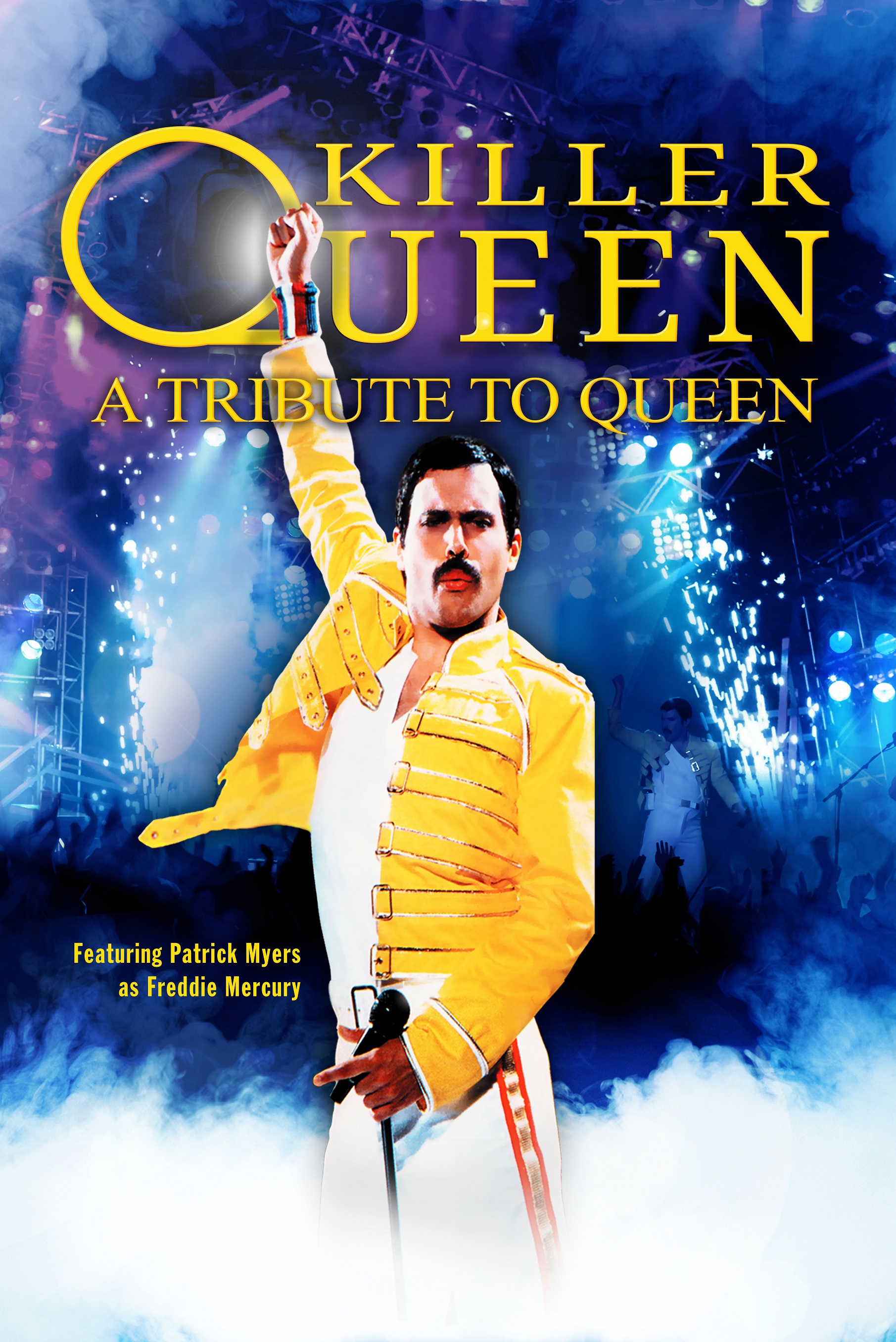
GW: So what are your plans for touring in other regions after you wrap the summer U.S. tour?Are you going to roll right into the fall, or take a break and plan your 2025 bookings? And will the next tour feature new songs and sets, or will it be a continuation of the current format?
Myers: Yes, we’ll come back to North America in mid-September to mid-October, and then we’re doing arena shows in Europe a bit before and then arena shows in the UK – Newcastle, Aberdeen, Liverpool, all around – after that. So, yes, we have a lot of work lined up for this year.
GW: It sounds like an exciting production, and I’m sure that Queen fans will get a lot out of the experience.
Myers: Yes, we really do strive for authenticity. Songs like “Bohemian Rhapsody,” "Another One Bites the Dust” and “We Will Rock You/We Are the Champions” are like dynamite for the audiences. They absolutely adore them. Of course, they love the whole show, every song, but those songs are like the absolute “jewels in the crown,” if you like. They’re such a joy to celebrate with an audience, and you want to be there for every second of it!
For more information about Killer Queen and the band’s additional tour dates, please visit the website: https://www.killerqueenonline.com/
To hear Patrick Myers’ solo song, “We’ll Fight Again”, please visit the following link: https://soundcloud.com/user-81349501
A video link to Patrick Myers’ song on YouTube is also viewable at this link on the Killer Queen website: https://www.killerqueenonline.com/news
2024 U.S. Spring & Summer Tour Dates
February 29th, 2024 – The Stiefel Theatre for the Performing Arts – Salina, KS
March 1, 2024 – Brady Theater – Tulsa, OK
March 2, 2024 – Lava Cantina – The Colony, TX
March 6, 2024 – Stable Hall – San Antonio TX,
March 22, 2024 – Historic Bakersfield Fox Theater – Bakersfield, CA
March 23, 2024, – Bob Hope Theater – Stockton, CA
March 24, 2024 – Grand Sierra Resort and Casino – Reno, NV
March 26, 2024 – Masonic Auditorium – San Francisco, CA
March 28, 2024 – McDonald Theatre – Eugene, OR
March 29, 2024 – Roseland Theater – Portland, OR
March 30, 2024 – Temple Theater – Tacoma, WA
June 28, 2024 – Carpenter Theater – Richmond, VA
June 29, 2024 – Santander Performing Arts Center – Reading, PA
July 1, 2024 – Ocean City Music Pier – Ocean City, NJ
July 2, 2024 – Capital One Hall – Tysons, VA
July 5, 2024 – Paramount Theatre – Anderson, IN
July 6, 2024 – Centennial Terrace – Sylvania, OH
July 12, 2024 – Honeywell Center – Wabash, IN
July 13, 2024 – The Rhythm Section Amphitheater – Mount Carroll, IL
July 16, 2024 – Red Rocks Amphitheater – Morrison, CO
July 18, 2024 – Uptown Theater – Kansas City, Missouri
July 26, 2024 – River City Casino – St. Louis, MO
July 27, 2024 – Ravinia Festival – Highland Parks, IL
July 28, 2024 – Peoria Civic Center Theater – Peoria, IL





